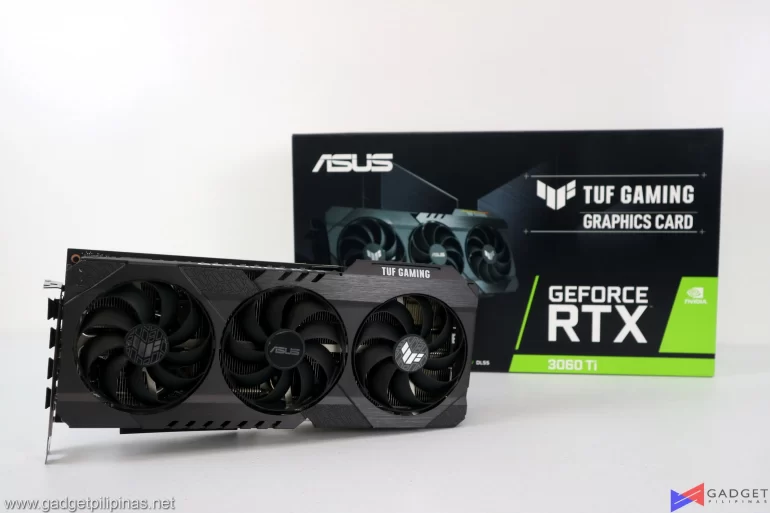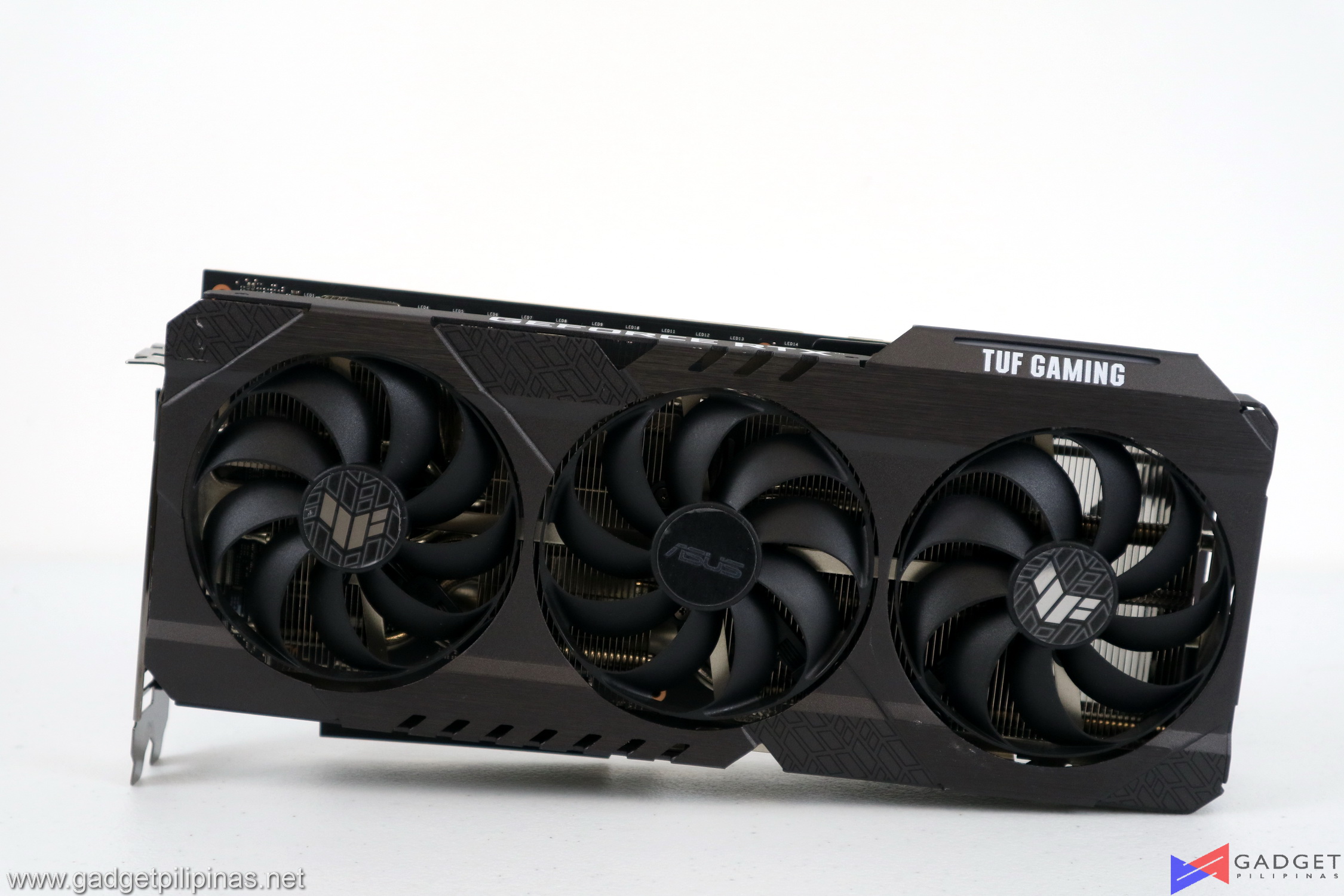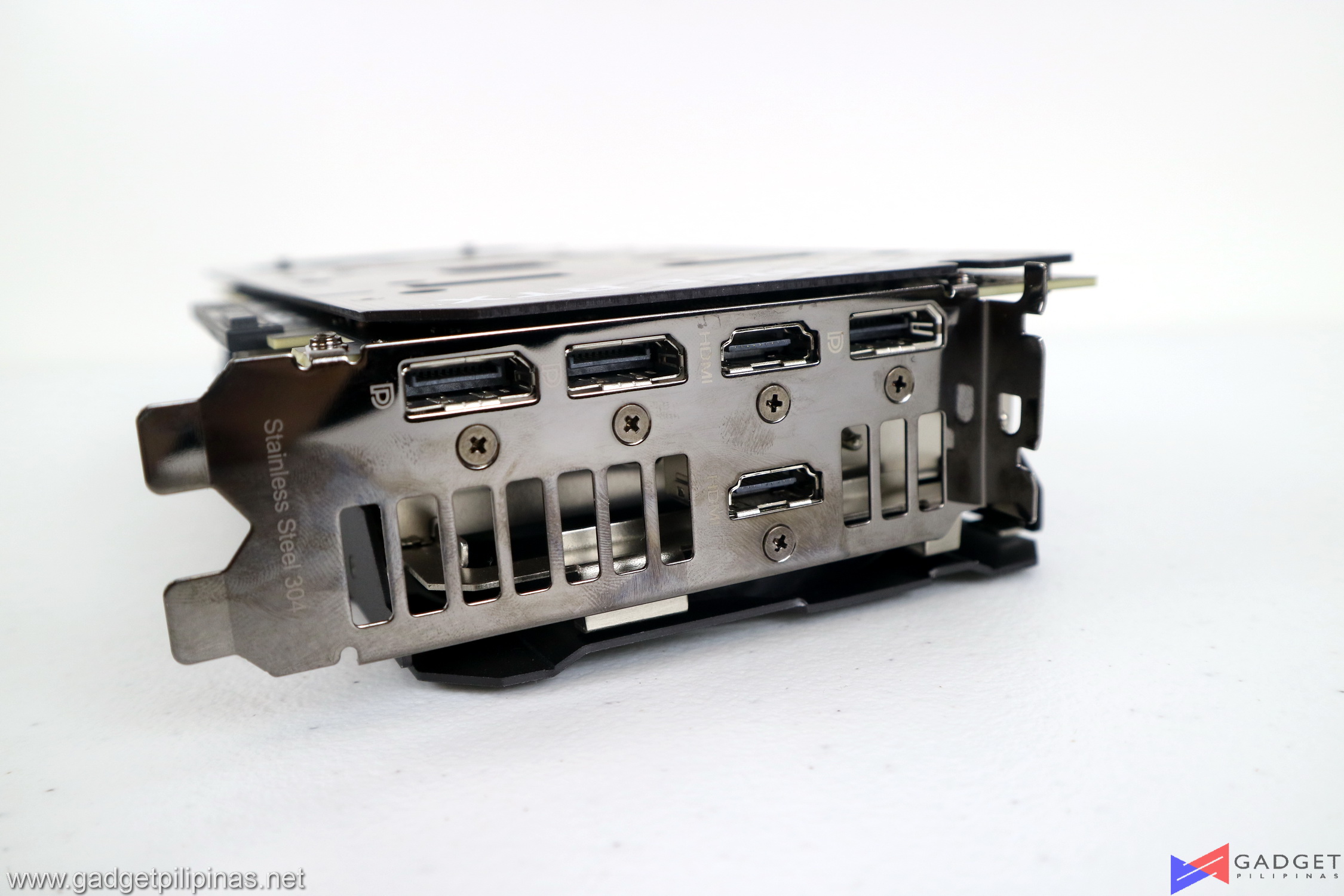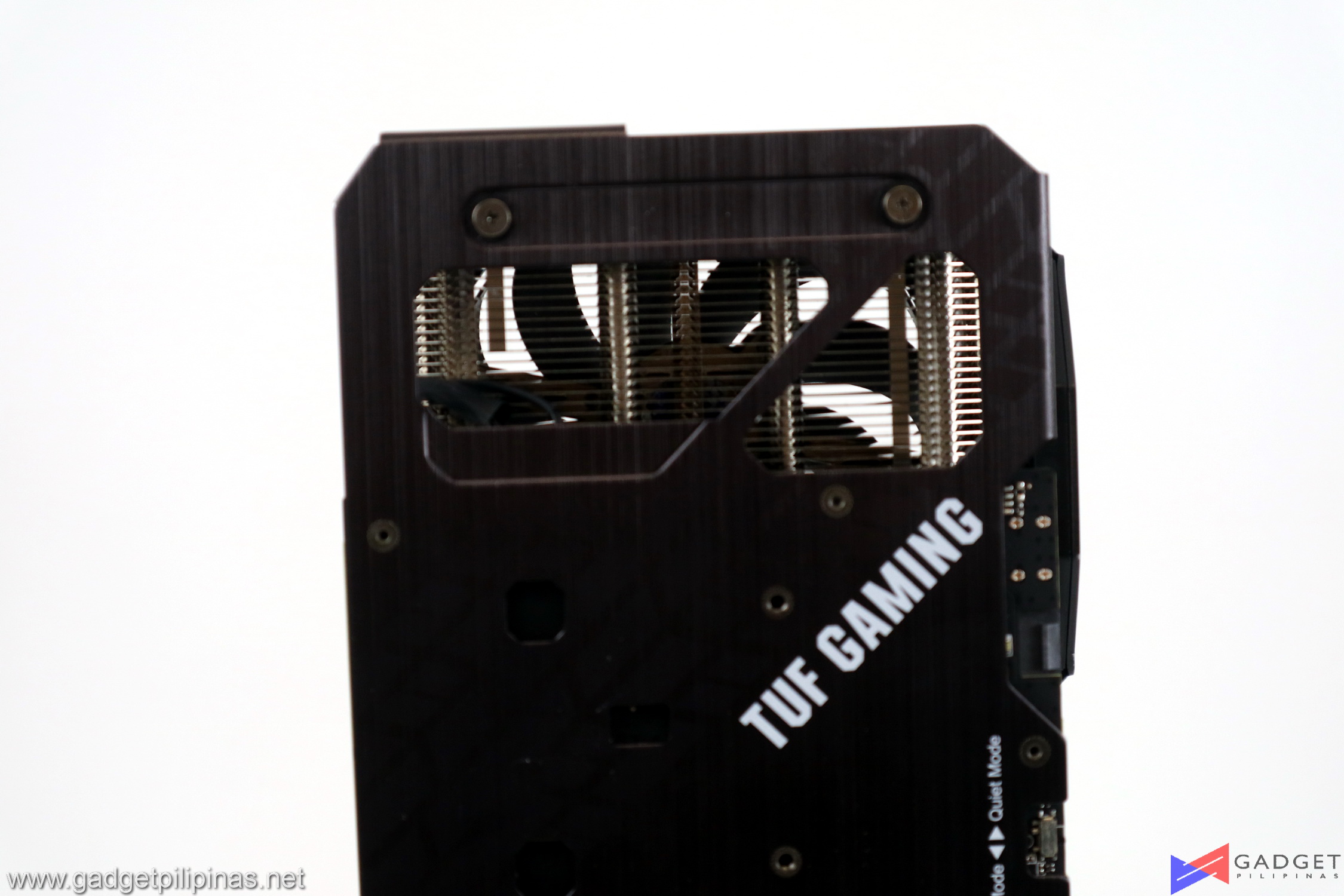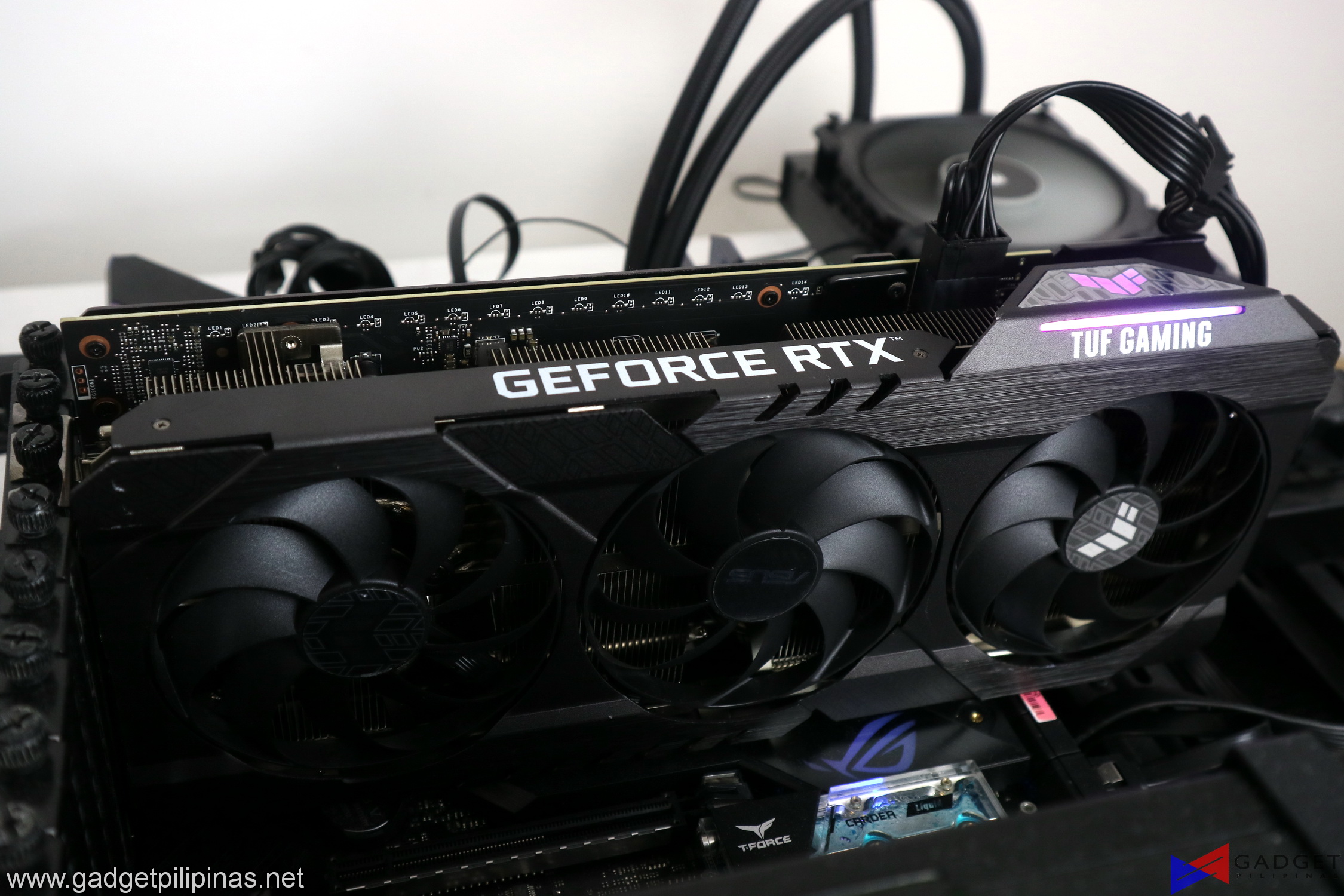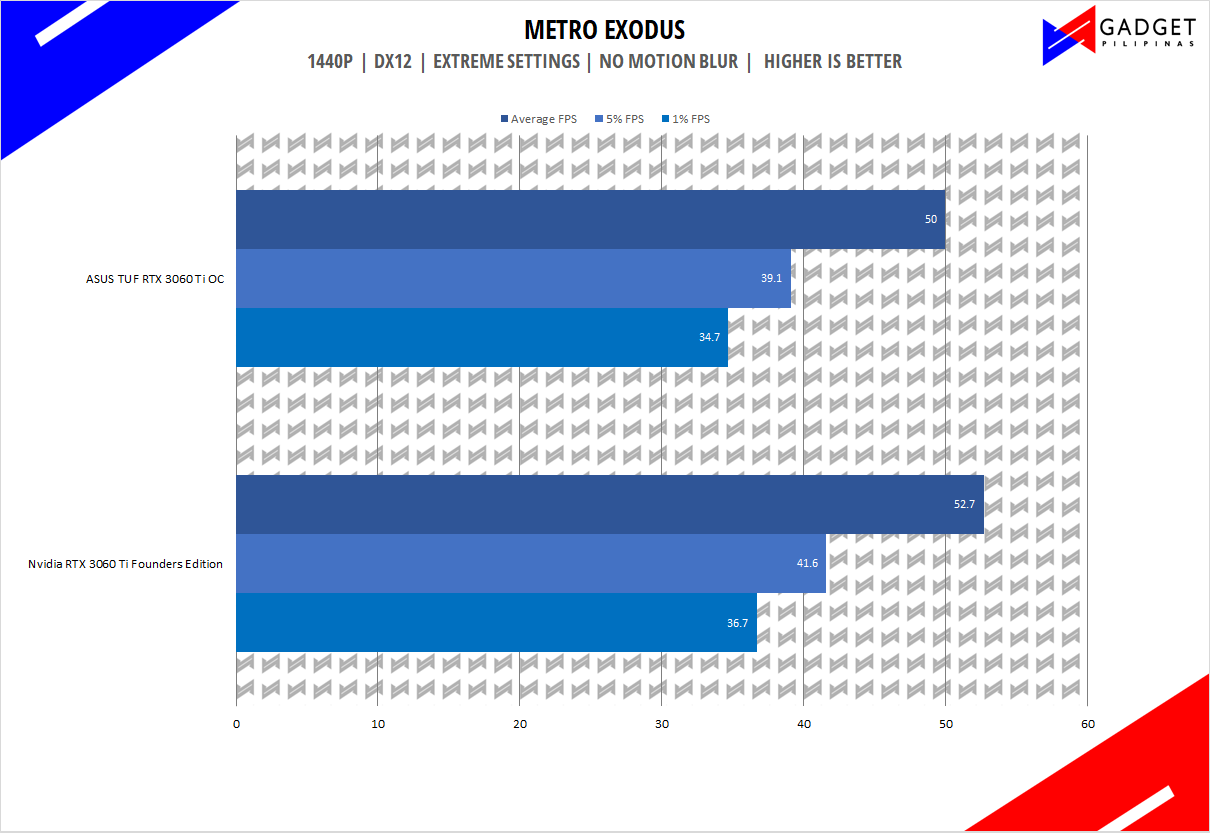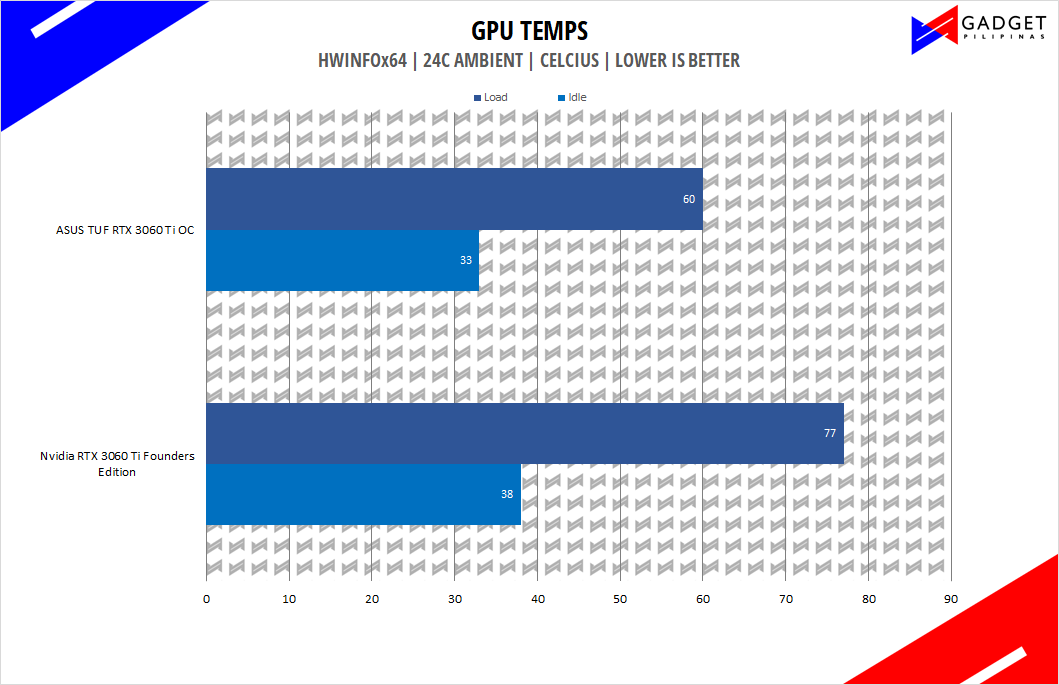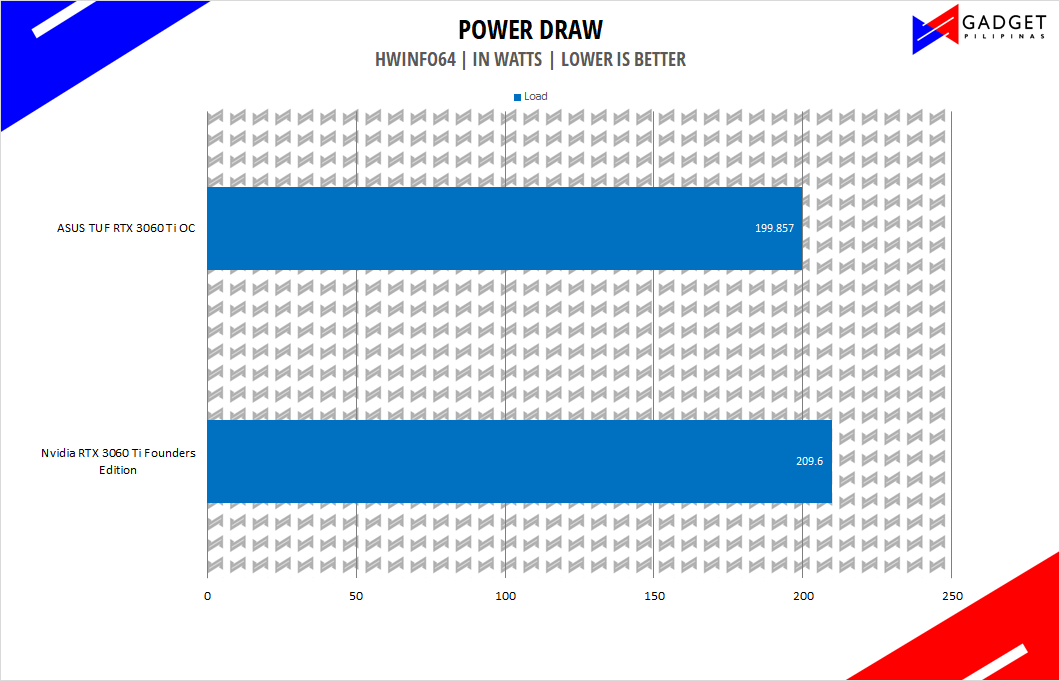Introduction, Brand Logo, and RTX 3060 Ti Series
 ASUS covertly introduced a new TUF Gaming logo alongside the debut of Nvidia’s RTX 30 series graphics card under the Ampere architecture. The ASUS TUF RTX 3080 Gaming and TUF RTX 3080 Gaming OC were the first products to use the new logo design which was quickly followed by the rest of the RTX 30 series products as well as the AMD’s latest RX 6800 graphics card. The newest addition to this redesigned TUF brand is the TUF RTX 3060 Ti Gaming OC.
ASUS covertly introduced a new TUF Gaming logo alongside the debut of Nvidia’s RTX 30 series graphics card under the Ampere architecture. The ASUS TUF RTX 3080 Gaming and TUF RTX 3080 Gaming OC were the first products to use the new logo design which was quickly followed by the rest of the RTX 30 series products as well as the AMD’s latest RX 6800 graphics card. The newest addition to this redesigned TUF brand is the TUF RTX 3060 Ti Gaming OC.
Nvidia GeForce RTX 3060 Ti Specs
| Graphics Card | RTX 3080 | RTX 3070 | RTX 3060 Ti | RTX 2080 Super | RTX 2060 Super |
| Architecture | GA102 | GA104 | GA104 | TU104 | TU106 |
| Process Technology | Samsung 8N | Samsung 8N | Samsung 8N | TSMC 12FFN | TSMC 12FFN |
| Transistors (Billion) | 28.3 | 17.4 | 17.4 | 13.6 | 10.8 |
| Die size (mm^2) | 628.4 | 392.5 | 392.5 | 545 | 445 |
| TPCs | 34 | 23 | 19 | 24 | 17 |
| SMs | 68 | 46 | 38 | 48 | 34 |
| GPCs | 6 | 6 | 5 | 6 | 3 |
| GPU Cores | 8704 | 5888 | 4864 | 3072 | 2176 |
| Tensor Cores | 272 | 184 | 152 | 384 | 272 |
| RT Cores | 68 | 46 | 38 | 48 | 34 |
| Base Clock (MHz) | 1440 | 1500 | 1410 | 1650 | 1470 |
| Boost Clock (MHz) | 1710 | 1725 | 1665 | 1815 | 1650 |
| VRAM Speed (Gbps) | 19 | 14 | 14 | 15.5 | 14 |
| VRAM (GB) | 10 | 8 | 8 | 8 | 8 |
| VRAM Bus Width | 320 | 256 | 256 | 256 | 256 |
| ROPs | 96 | 96 | 80 | 64 | 64 |
| TMUs | 272 | 184 | 152 | 192 | 136 |
| Bandwidth (GB/s) | 760 | 448 | 448 | 496 | 448 |
| TDP (watts) | 320 | 220 | 200 | 185 | 185 |
| Launch Price | $699 | $499 | $399 | $699 | $399 |
Powering the all-new RTX 3060Ti is the same GA104 core found on the RTX 3070 but with fewer cores and slightly lower clock speeds. The reduction of both cores and clock speeds resulted in a lower SRP of $399 compared to the RTX 3070’s $499 price tag. The 20% price cut matches the previous RTX 2060 Super’s launch price albeit the RTX 3060 Ti is positioned to be equal to or more than the RTX 2080 super which retailed for $699.
| Model | SRP |
| ROG-STRIX-RTX3060TI-O8G-GAMING | PHP 34,590.00 |
| TUF-RTX3060TI-O8G-GAMING | PHP 31,490.00 |
| KO-RTX3060TI-O8G-GAMING | PHP 31,790.00 |
| DUAL-RTX3060TI-O8G | PHP 29,890.00 |
The ASUS TUF RTX 3060Ti OC 8GB Gaming graphics card is the second card to ASUS’ RTX 3060 Ti tiering with the top model being the ROG Strix variant. Surprisingly, The TUF RTX 3060Ti is priced lower than the KO variant which is basically an RGB version of their lowest tier, the Dual.
[rtoc_mokuji title=”Contents” title_display=”left” heading=”h3″ list_h2_type=”round” list_h3_type=”number1″ display=”close” frame_design=”frame6″ animation=”slide”]
Unboxing and First Impressions
- ASUS TUF RTX 3060 Ti OC Review 02
- ASUS TUF RTX 3060 Ti OC Review 02
- ASUS TUF RTX 3060 Ti OC Review 04
- ASUS TUF RTX 3060 Ti OC Review 04
ASUS retains the same packaging design for TUF Gaming graphics card with the exception of the logo. The back part of the box shows highlighted features of the ASUS TUF RTX 3060 Ti OC GPU.
The GPU shroud design is slightly altered with a darker shade instead of the silvery hue and is an all-metal shroud compared to previous TUF GPUs. There are also more design accents on the card to emphasize the TUF RTX 3060 Ti’s military-inspired design.
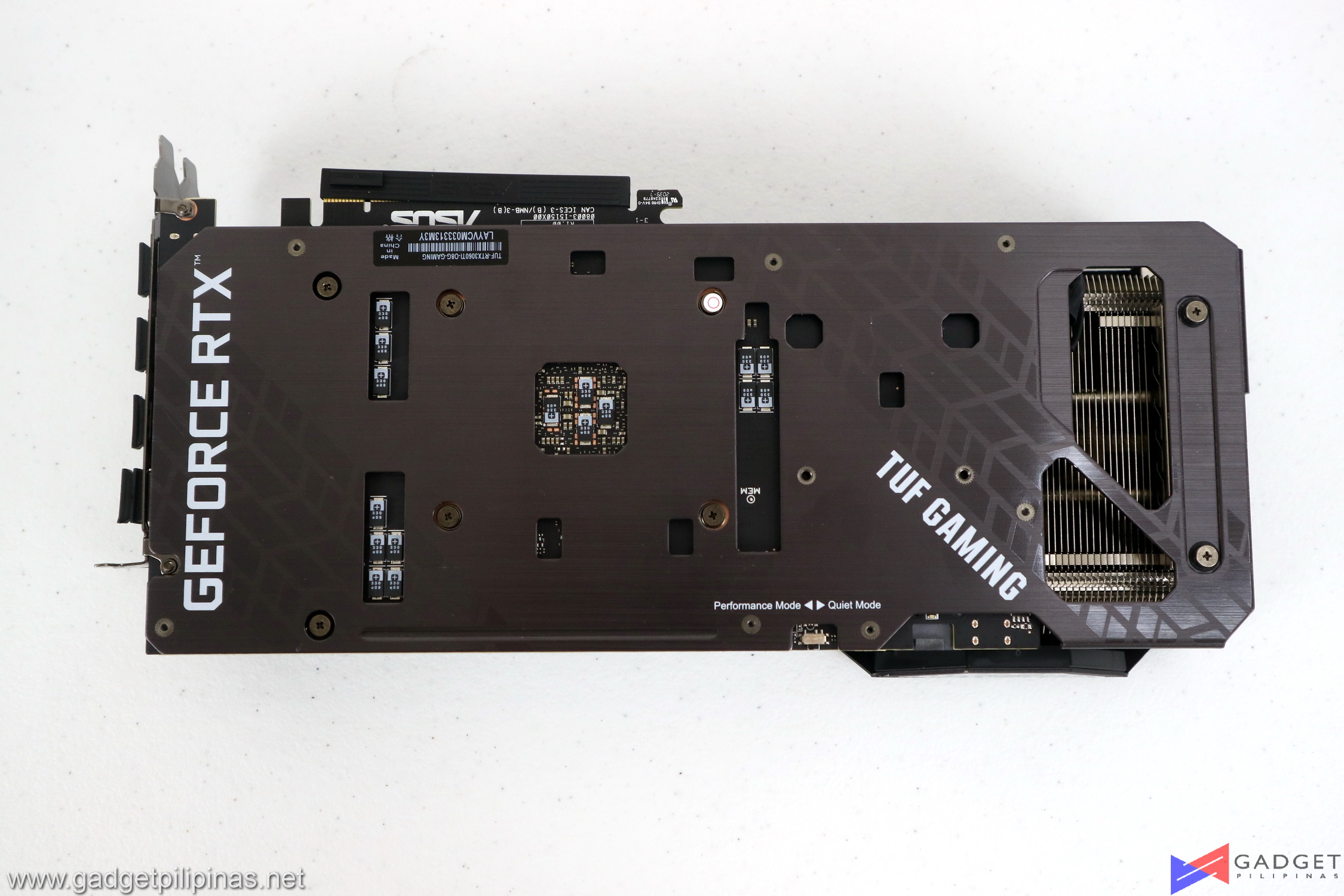 Unlike previous TUF graphics cards on the lower end, the TUF RTX 3060 Ti has a full-sized metal backplate which also acts as a heatsink for the GPU.
Unlike previous TUF graphics cards on the lower end, the TUF RTX 3060 Ti has a full-sized metal backplate which also acts as a heatsink for the GPU.
Connectivity-wise, ASUS is generous enough to include another HDMI port aside from the standard 3x Display Port and 1x HDMI configurations. The HDMI ports support HDMI 2.1 while the Display Ports support 1.4a.
A small cutout can be found on the right side as it helps to pass through heat thanks to the improved airflow. This application is basically Nvidia’s “flowthrough” cooler which is seen on the RTX 30 series founders edition, albeit with a smaller cutout.
- ASUS TUF RTX 3060 Ti OC Review 23
- ASUS TUF RTX 3060 Ti OC Review 23
- ASUS TUF RTX 3060 Ti OC Review 24
- ASUS TUF RTX 3060 Ti OC Review 24
Like ROG Strix graphics cards, the ASUS TUF RTX 3060 Ti OC has a physical profile switch that can toggle between Performance Mode and Quiet Mode. The profile is set to performance mode by default so we’ll be using it as-is for our benchmark run. Only one 8-pin PCI-E power connector is required for the TUF RTX 3060 Ti OC.
TUF Gaming graphics cards are not known to have RGB lighting since their main focus is on build quality above everything else. It’s nice to see ASUS improving the aesthetic side of things for TUF GPUs. The TUF Gaming Logo and light bar on the ASUS TUF RTX 3060 Ti can be adjusted on the ASUS Armoury Crate software.
Benchmark Methodology
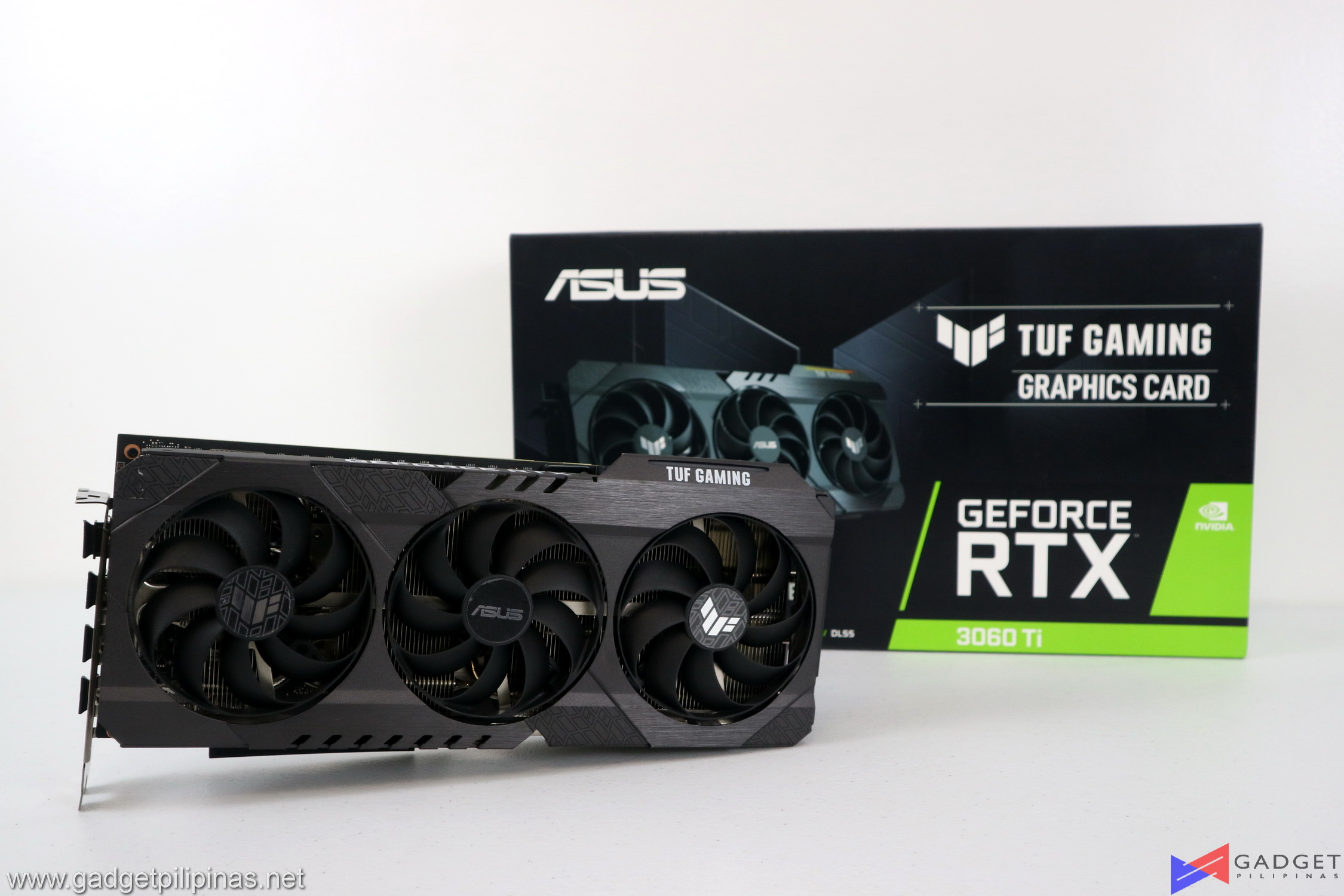 Gadget Pilipinas’ testing philosophy is to provide detail-oriented results as accurately as possible that our readers can replicate our tests given that these conditions are met. Different benchmarking apps and sequences are used depending on the component or device being tested.
Gadget Pilipinas’ testing philosophy is to provide detail-oriented results as accurately as possible that our readers can replicate our tests given that these conditions are met. Different benchmarking apps and sequences are used depending on the component or device being tested.
| ASUS TUF RTX 3060Ti OC Review Test Bench Specs | ||||
| CPU | AMD Ryzen 9 5950X | |||
| COOLER | Corsair H100i RGB PRO XT 240mm AIO – Noctua NT-H2 Thermal Paste | |||
| MOTHERBOARD | ASUS ROG Crosshair VIII Hero (Wi-Fi) | BIOS 2502 | |||
| MEMORY | Tforce XTREEM ARGB 16GB(2x8GB) 3600Mhz DDR4 | |||
| GPU | Nvidia RTX 3060 Ti Founders Edition | ASUS TUF RTX 3060 Ti OC | ||
| STORAGE | TForce CARDEA Liquid NVMe SSD | |||
| POWERSUPPLY | ThermalTake ToughPower 1200w Platinum | |||
| OPERATING SYSTEM | Windows 10 Pro Build 2404 | |||
| DISPLAY | Lenovo Legion Y27Q Gaming Monitor | |||
We use CapFrameX 1.5.7 Beta as our FPS capture and analysis tool for all our gaming benchmarks. The latest build version of Windows 10 and WHQL certified drivers are used for our benchmarks. Readings such as temperatures and power draw are recorded using HWMonitor and HWInfo64 as well as other relevant software are used for cross-checking.
Our benchmark list and methodology may change in the future depending on the industry trend.
TUF RTX 3060 Ti Synthetic Benchmarks
3DMARK
- ASUS TUF RTX 3060 Ti OC Review 3DMark Firestrike Benchmark
- ASUS TUF RTX 3060 Ti OC Review 3DMark Firestrike Benchmark
- ASUS TUF RTX 3060 Ti OC Review 3DMark Port Royal Benchmark
- ASUS TUF RTX 3060 Ti OC Review 3DMark Port Royal Benchmark
- ASUS TUF RTX 3060 Ti OC Review 3DMark TimeSpy Benchmark
- ASUS TUF RTX 3060 Ti OC Review 3DMark TimeSpy Benchmark
3DMark is the go-to benchmark for gamers because of the ability to share and compare results online.
GeekBench 5
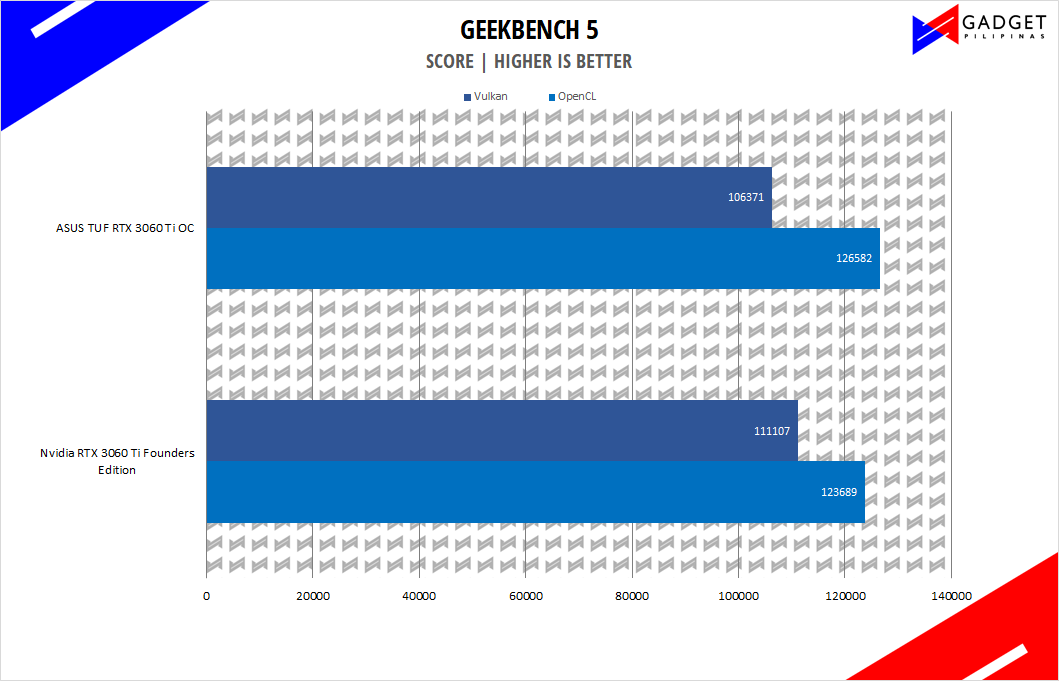 Geekbench is a multi-platform benchmark that’s used to gauge CPU performance and compare them across Windows, Mac, and Mobile. Geekbench 5 is the latest version and doesn’t rely on memory as much compared to the previous Geekbench 4, making it a great tool to measure both single-core and multi-core CPU performance. For our GPU reviews, we both measure OpenCL and Vulkan performance
Geekbench is a multi-platform benchmark that’s used to gauge CPU performance and compare them across Windows, Mac, and Mobile. Geekbench 5 is the latest version and doesn’t rely on memory as much compared to the previous Geekbench 4, making it a great tool to measure both single-core and multi-core CPU performance. For our GPU reviews, we both measure OpenCL and Vulkan performance
V-RAY
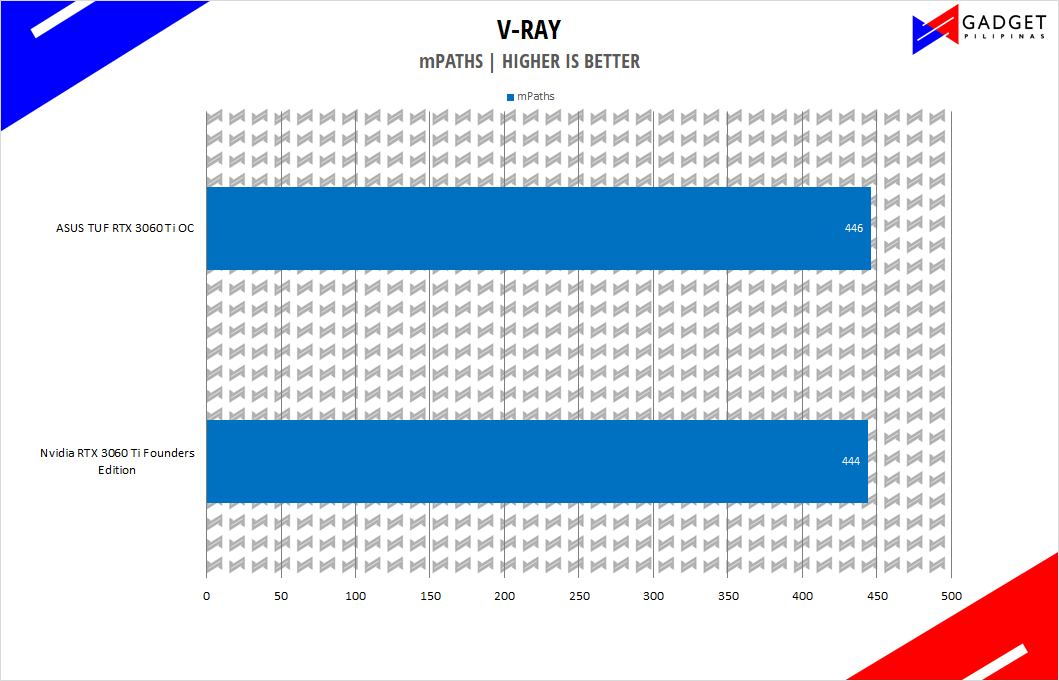 V-Ray Benchmark is a stand-alone version of V-Ray developed by Chaos Group. It is designed to test the CPU and GPU by rendering sample scenes at a fixed amount of time. V-Ray is a plug-in mostly utilized by 3D computer graphics software applications mainly for industrial design, product design, architecture, film, and video game production. V-Ray is not limited to 64-threads as it supports multi and mega-threading.
V-Ray Benchmark is a stand-alone version of V-Ray developed by Chaos Group. It is designed to test the CPU and GPU by rendering sample scenes at a fixed amount of time. V-Ray is a plug-in mostly utilized by 3D computer graphics software applications mainly for industrial design, product design, architecture, film, and video game production. V-Ray is not limited to 64-threads as it supports multi and mega-threading.
TUF RTX 3060 Ti Gaming Benchmarks
DOTA 2
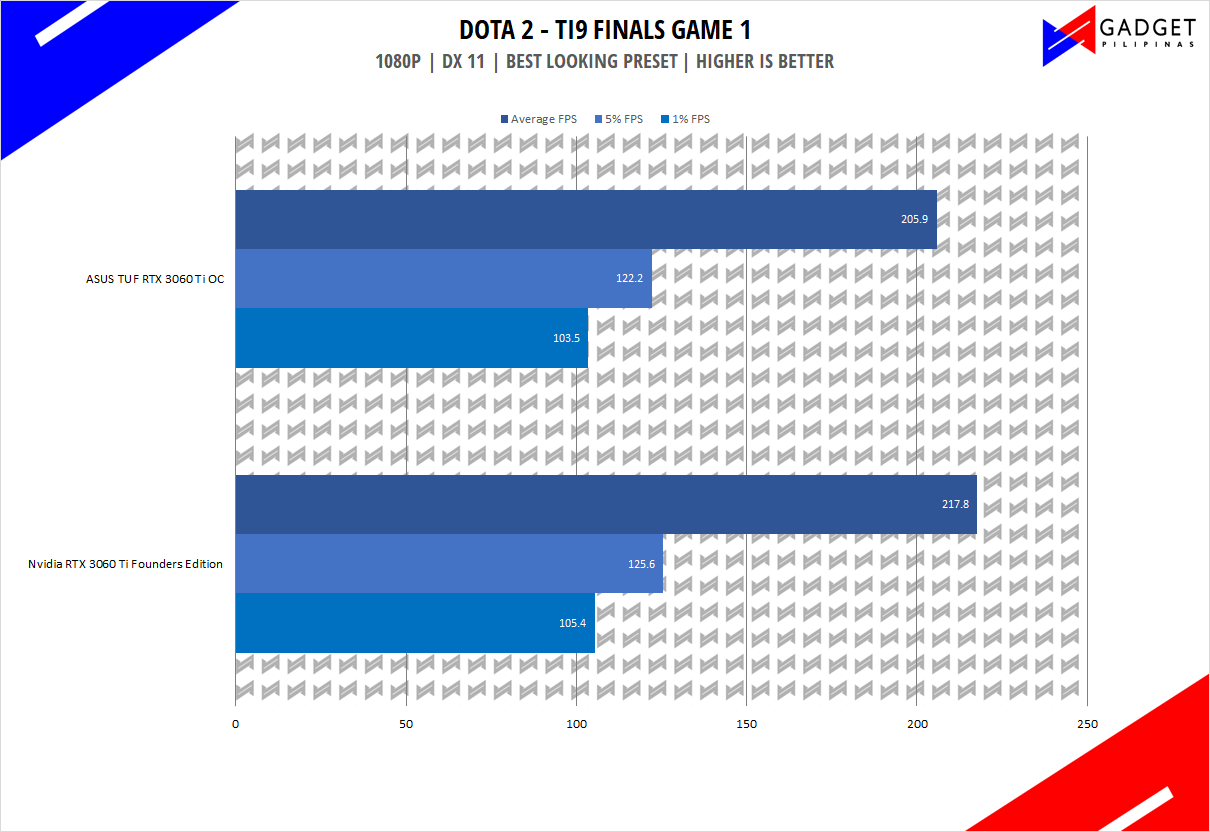
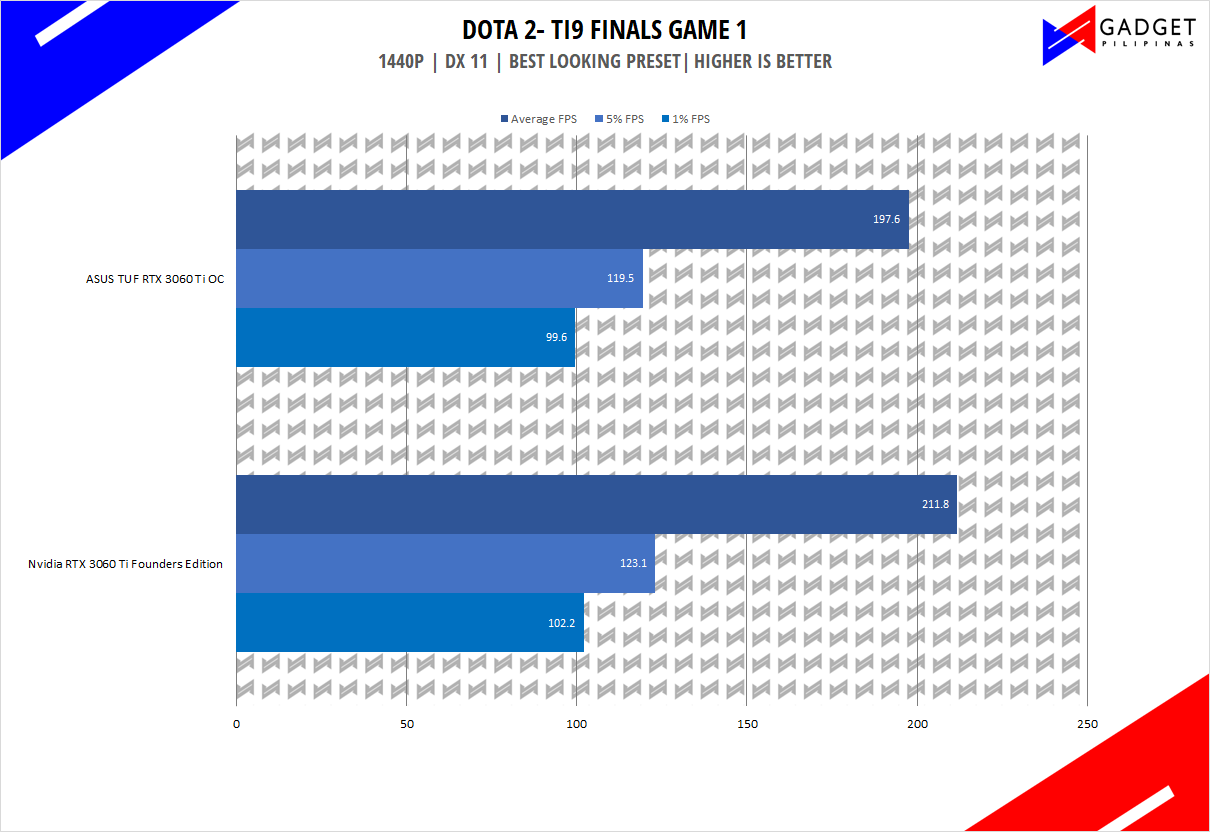
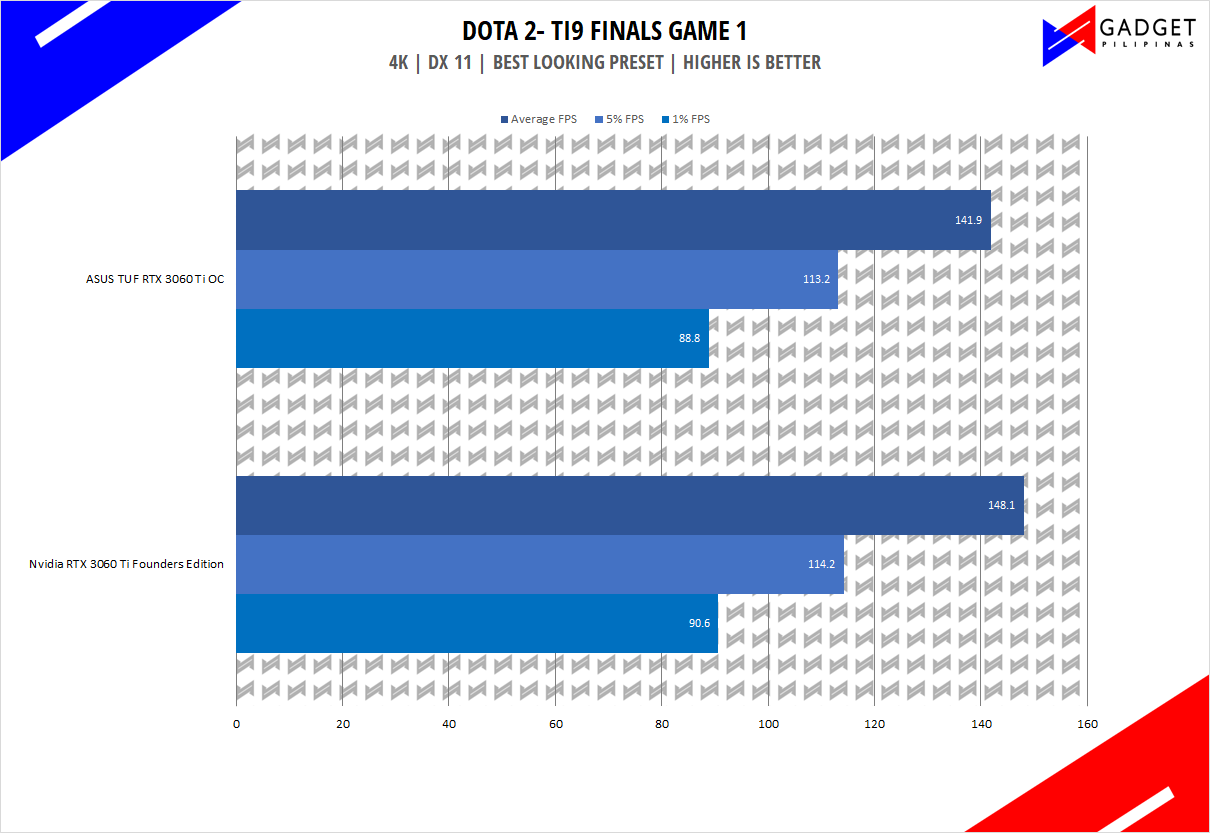 Most gamers play at least one of the following free-to-play titles: League of Legends, CS: GO, Dota 2, and/or Fortnite. Dota 2 is a good representation of the F2P titles as it is the most demanding game in the spectrum. The benchmark will give you an idea of the graphic card’s relative performance on other lesser demanding titles. Our benchmark sequence is based on a replay of OG vs. Liquid in the TI9 grand finals from the team fight that happened on 28:30 to 29:30.
Most gamers play at least one of the following free-to-play titles: League of Legends, CS: GO, Dota 2, and/or Fortnite. Dota 2 is a good representation of the F2P titles as it is the most demanding game in the spectrum. The benchmark will give you an idea of the graphic card’s relative performance on other lesser demanding titles. Our benchmark sequence is based on a replay of OG vs. Liquid in the TI9 grand finals from the team fight that happened on 28:30 to 29:30.
Far Cry 5

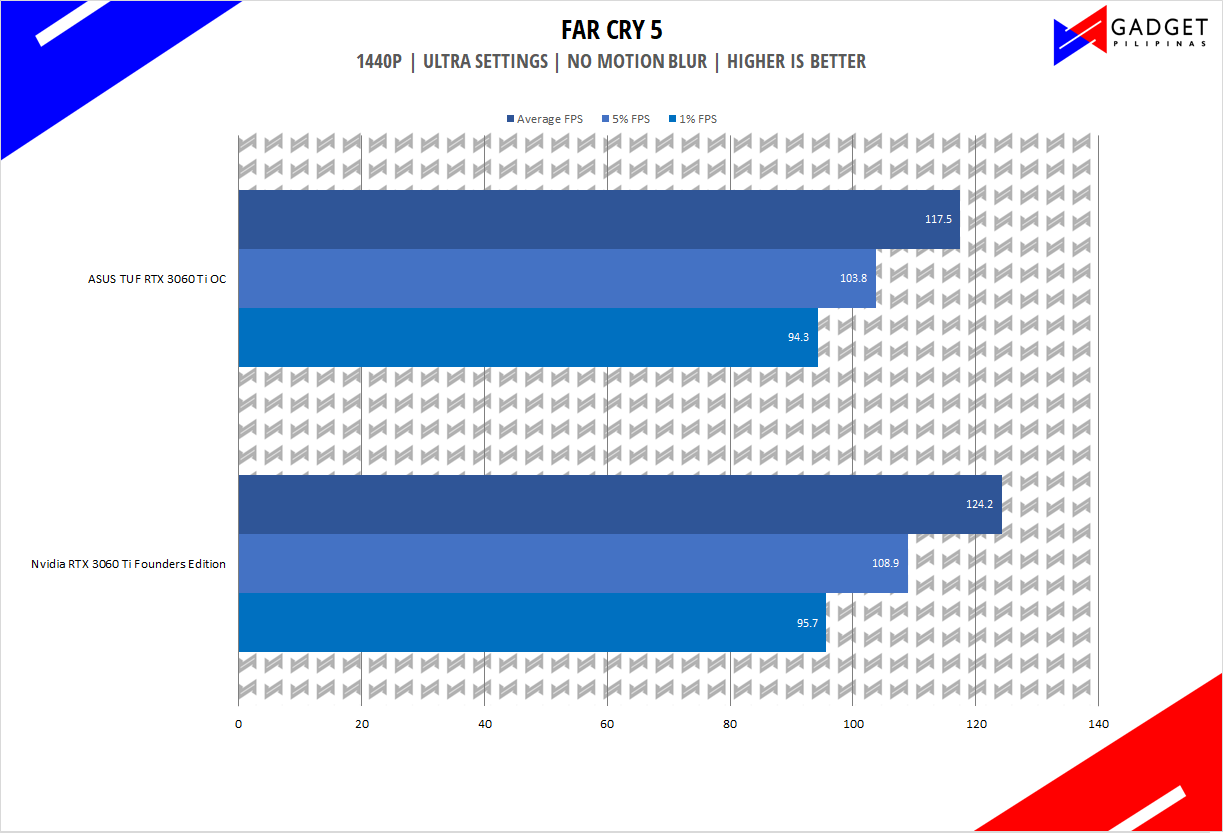
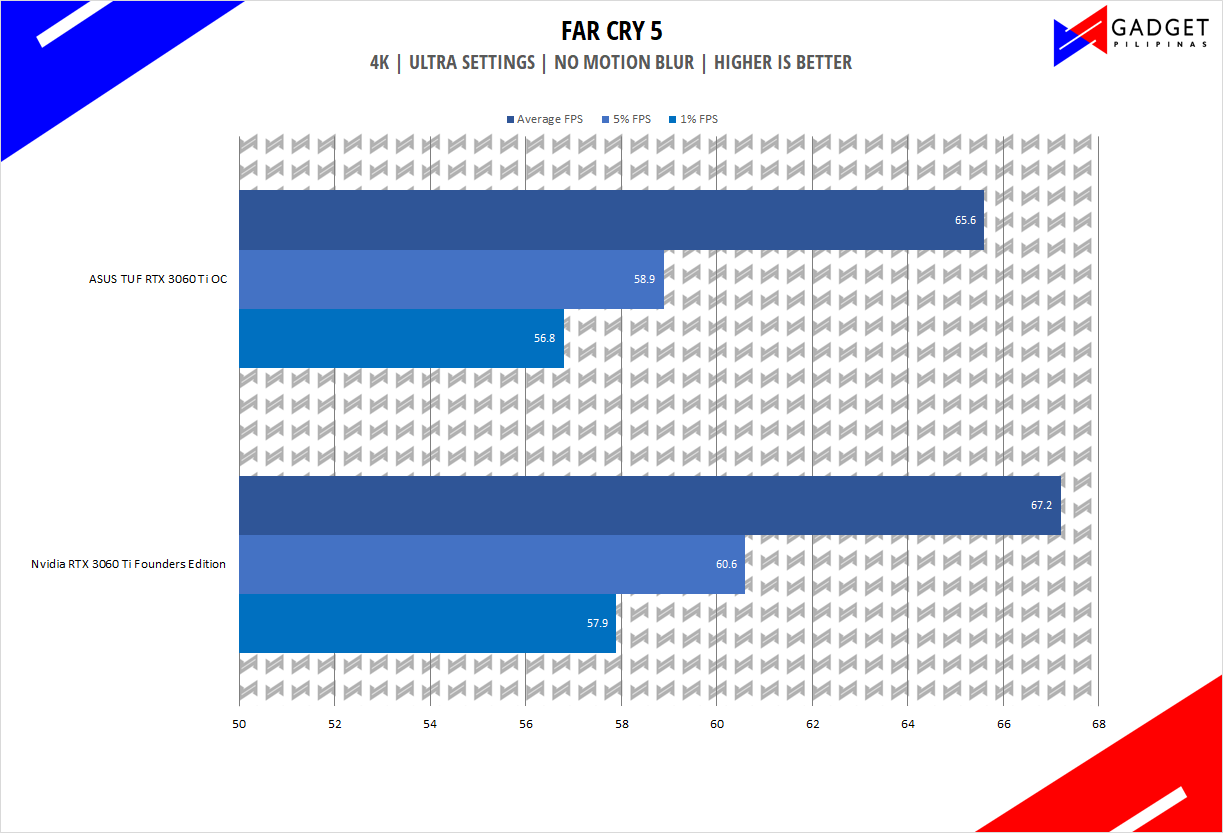 FarCry 5 is an FPS game published by Ubisoft and uses the Dunia engine. It heavily relies on and takes advantage of DirectX 11 to render a realistic environment that makes it taxing to both the CPU and GPU.
FarCry 5 is an FPS game published by Ubisoft and uses the Dunia engine. It heavily relies on and takes advantage of DirectX 11 to render a realistic environment that makes it taxing to both the CPU and GPU.
Rainbow Six Siege
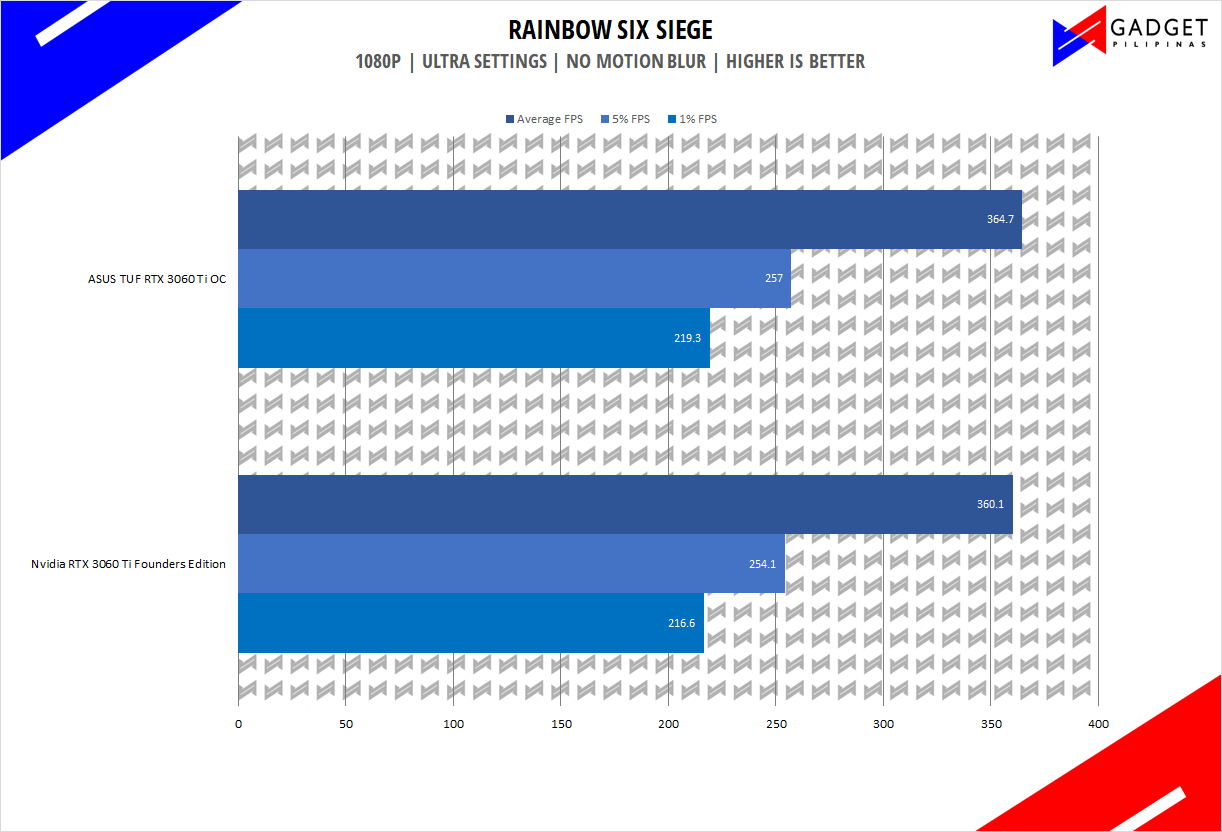
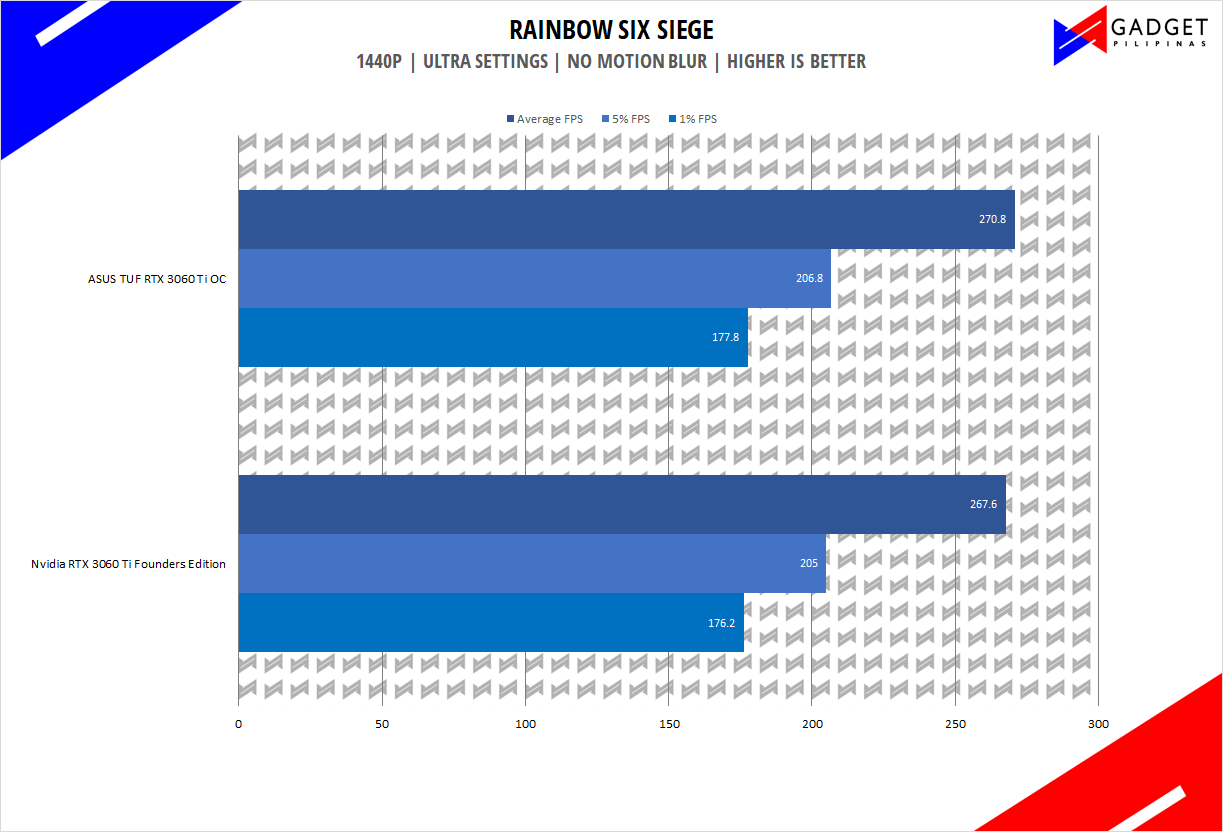
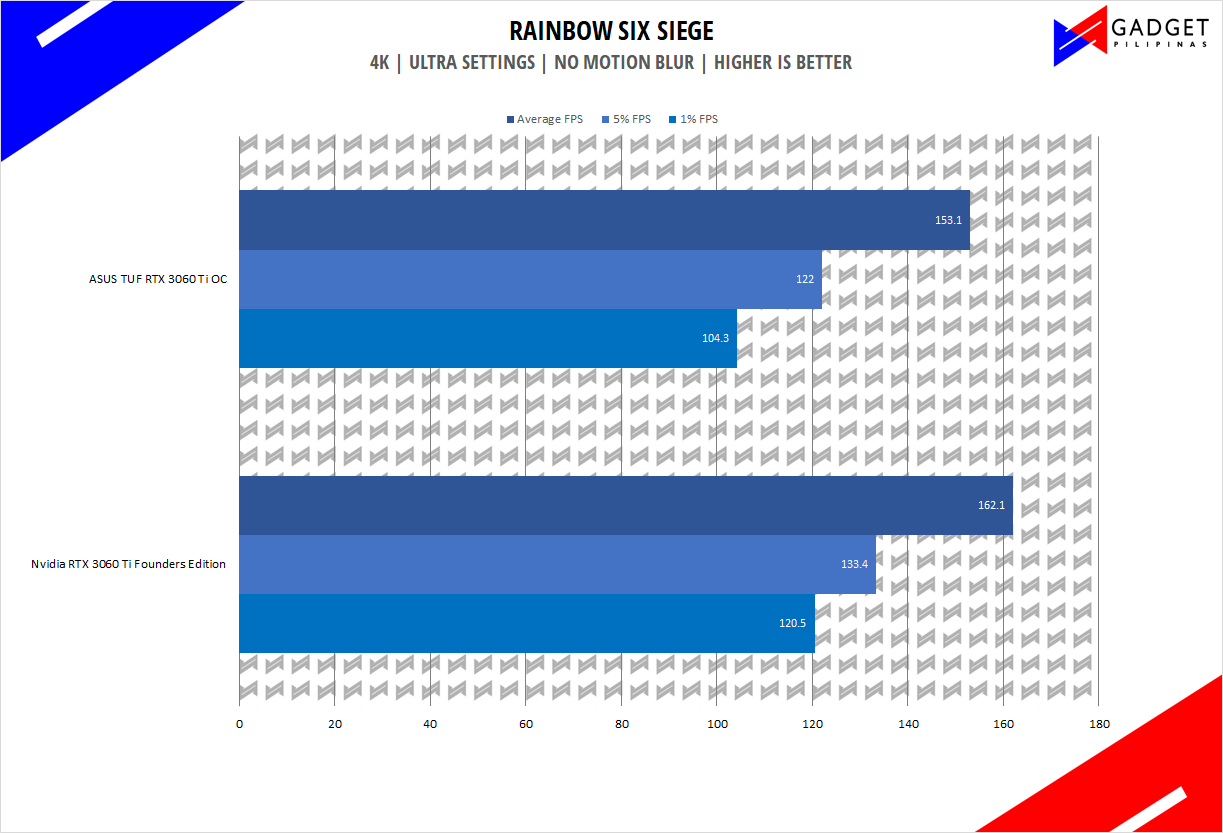 Rainbow Six Seige is one of the few popular AAA games that’s still popular in 2021 due to its competitive gameplay mechanics. R6S uses the AnvilNext game engine, which is developed by the game’s publisher, Ubisoft. As of writing, Rainbow Six Siege is currently the most popular Tom Clancy title beating out Wildlands, Breakpoint and even, Division 2. Rainbow Six Seige is one of the few popular AAA games that’s still popular in 2019 due to its competitive gameplay mechanics. R6S uses the AnvilNext game engine, which is developed by the game’s publisher, Ubisoft. As of writing, Rainbow Six Siege is currently the most popular Tom Clancy title beating out Wildlands, Breakpoint and even, Division 2.
Rainbow Six Seige is one of the few popular AAA games that’s still popular in 2021 due to its competitive gameplay mechanics. R6S uses the AnvilNext game engine, which is developed by the game’s publisher, Ubisoft. As of writing, Rainbow Six Siege is currently the most popular Tom Clancy title beating out Wildlands, Breakpoint and even, Division 2. Rainbow Six Seige is one of the few popular AAA games that’s still popular in 2019 due to its competitive gameplay mechanics. R6S uses the AnvilNext game engine, which is developed by the game’s publisher, Ubisoft. As of writing, Rainbow Six Siege is currently the most popular Tom Clancy title beating out Wildlands, Breakpoint and even, Division 2.
Cyberpunk 2077
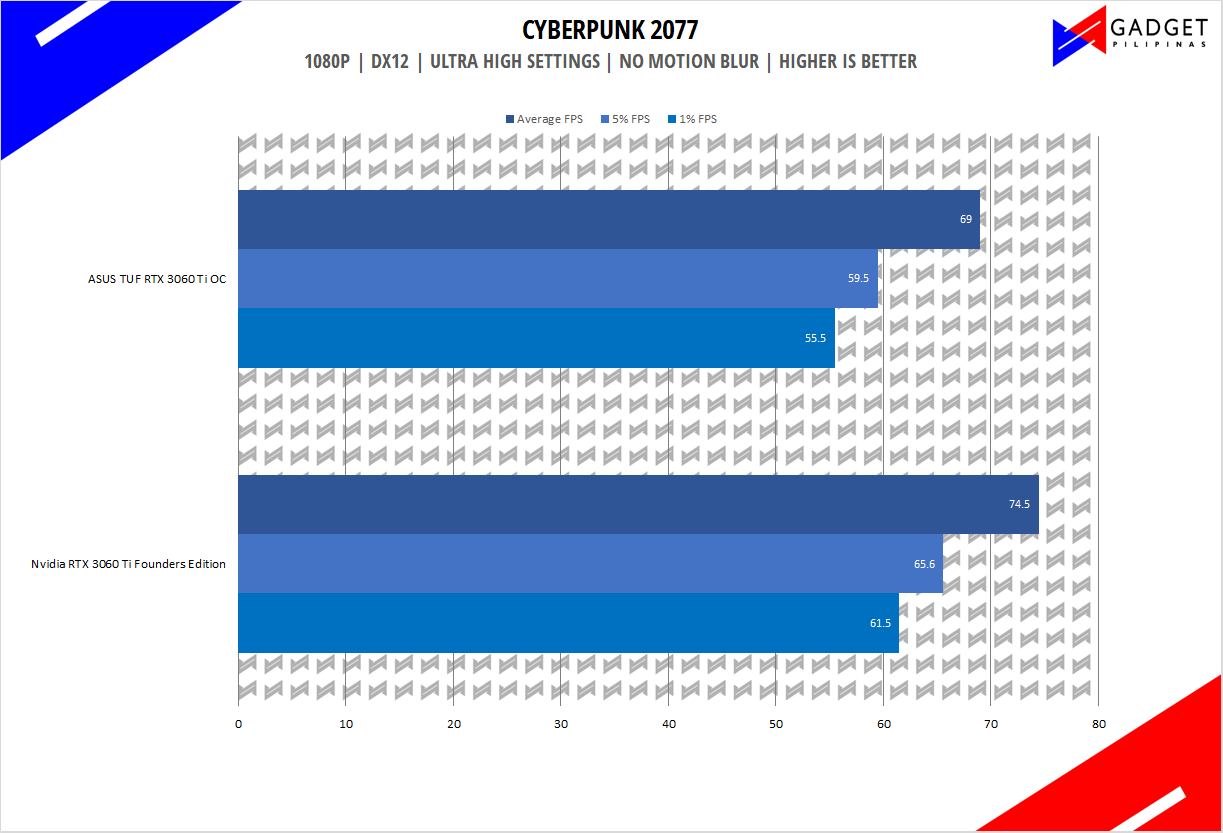
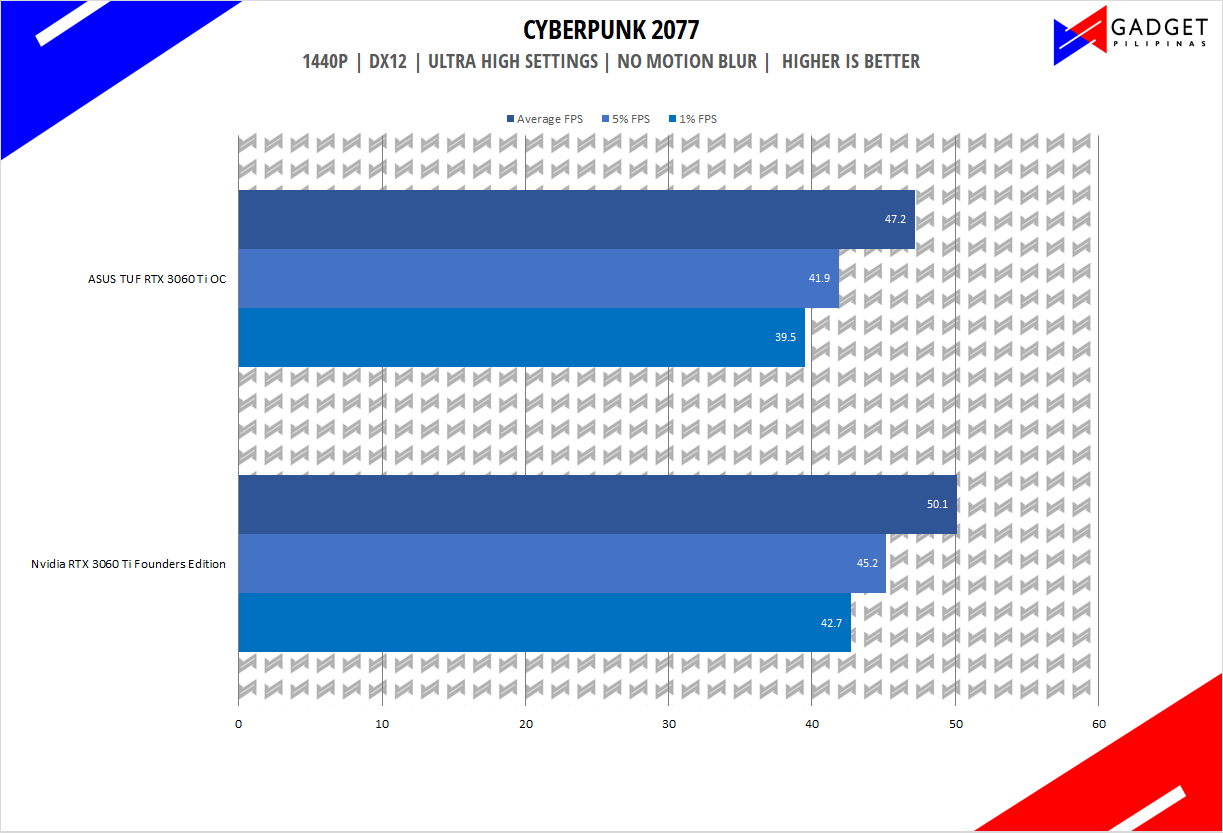
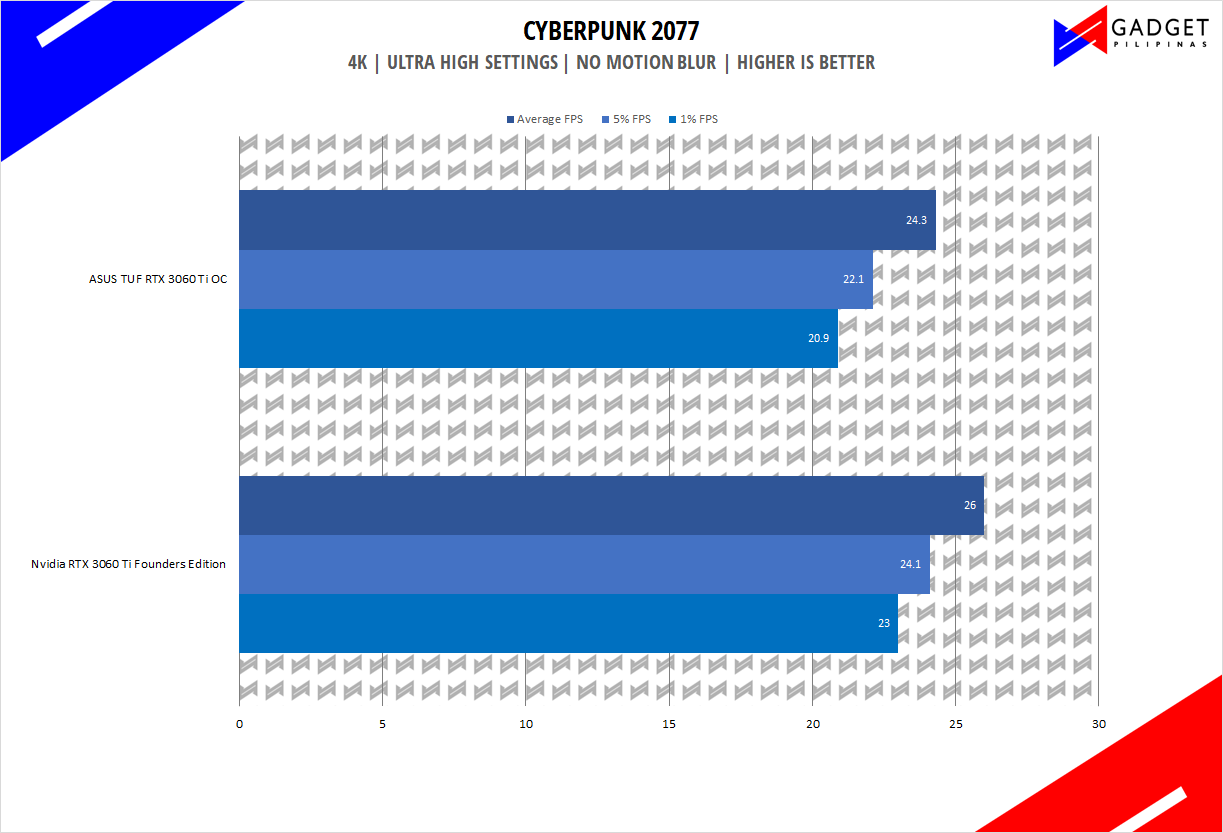 Cyberpunk 2077 is arguably the most hyped game of 2020. Developed by CD Projekt Red, the dystopian open-world, action-adventure RPG sports is one of the most demanding titles to date. Cyberpunk 2077 also supports three Ray Tracing settings as well as DLSS which makes the game a great tool to measure Ray tracing performance for both AMD and Nvidia graphics cards.
Cyberpunk 2077 is arguably the most hyped game of 2020. Developed by CD Projekt Red, the dystopian open-world, action-adventure RPG sports is one of the most demanding titles to date. Cyberpunk 2077 also supports three Ray Tracing settings as well as DLSS which makes the game a great tool to measure Ray tracing performance for both AMD and Nvidia graphics cards.
Horizon Zero Dawn
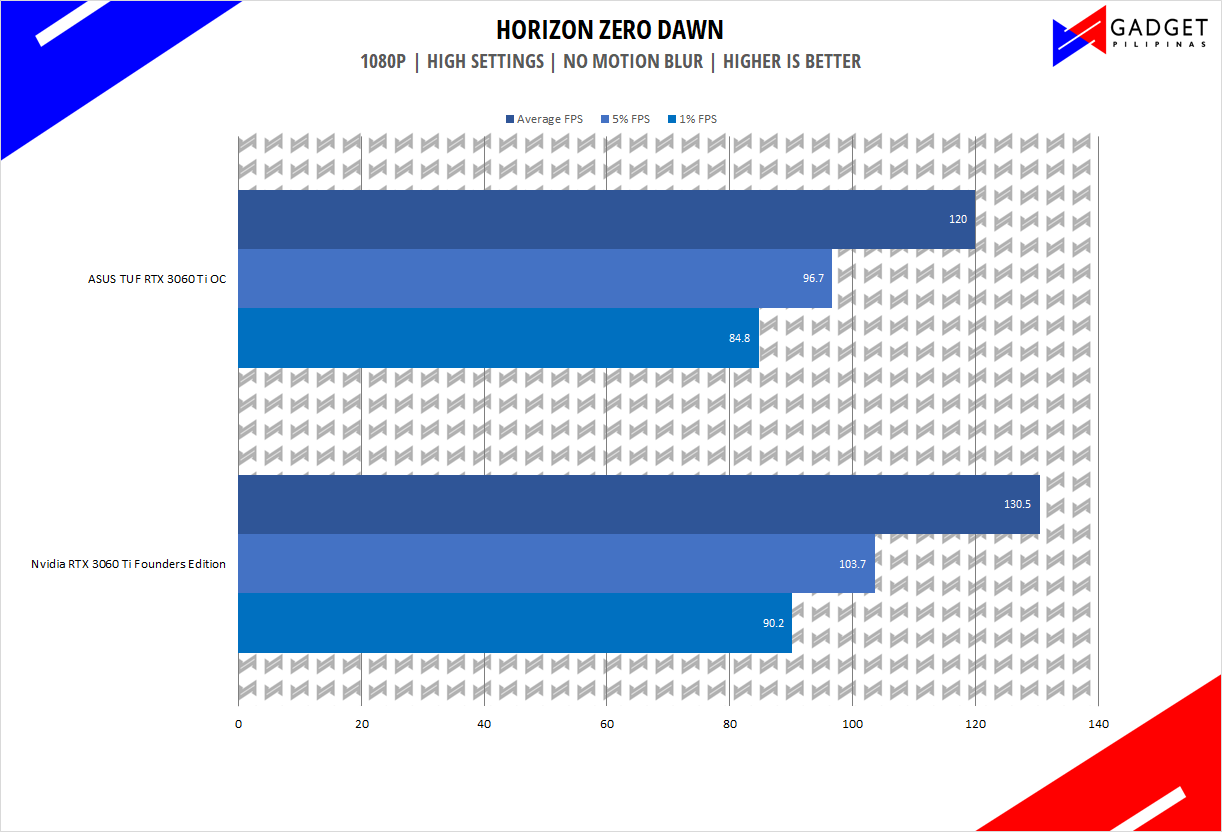
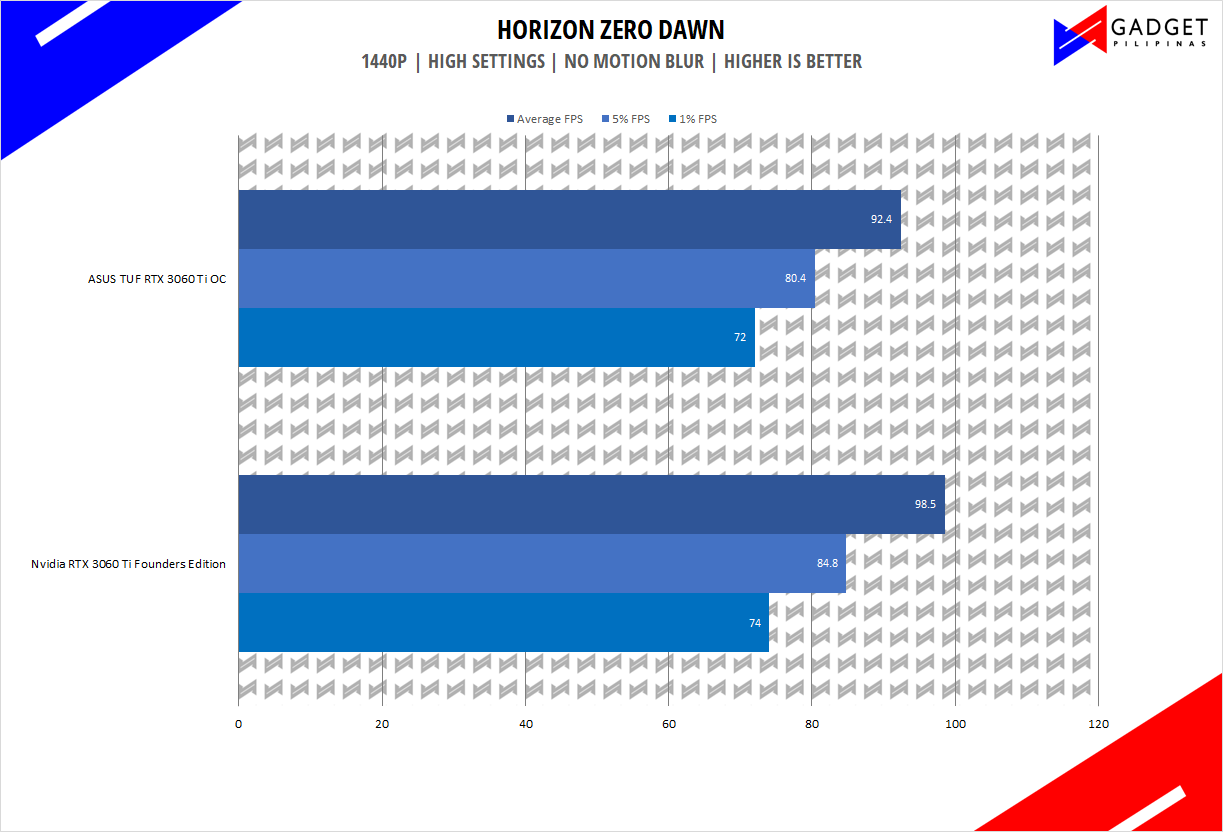
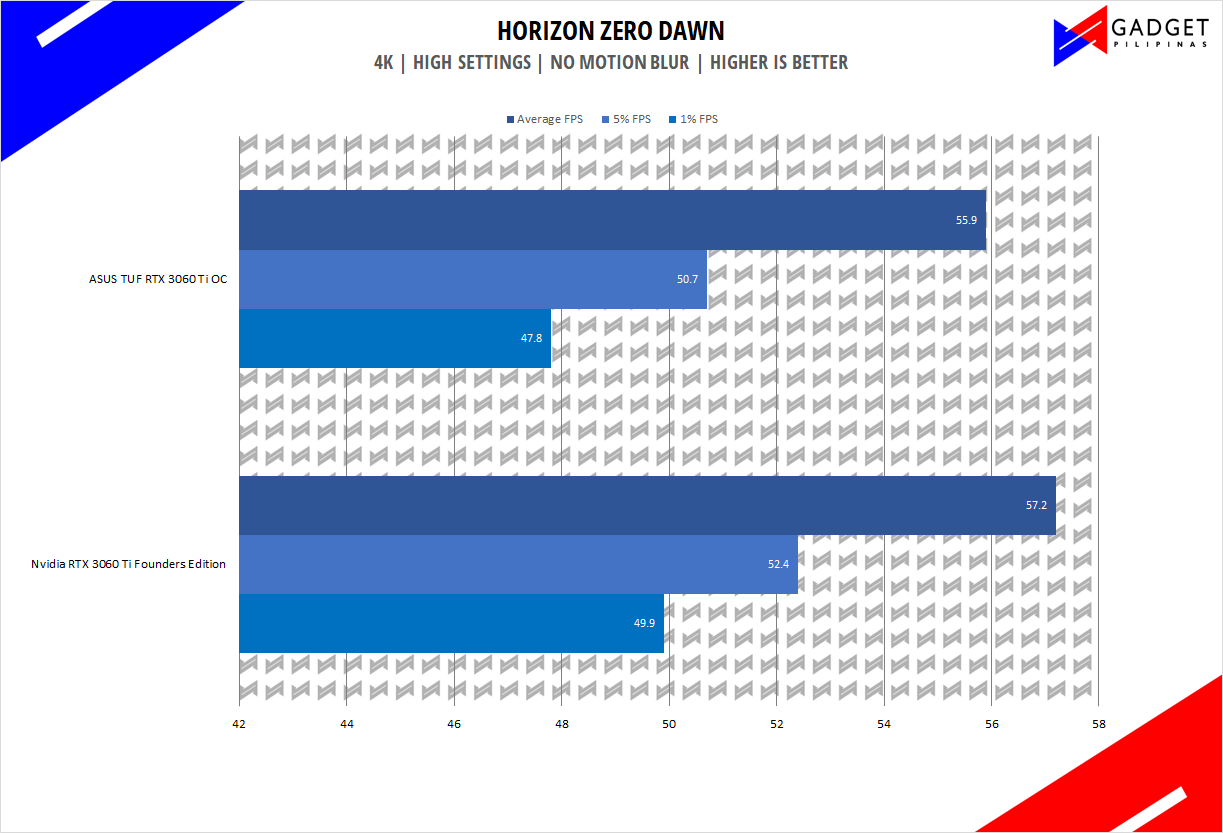 Horizon Zero Dawn is one of the most popular console-port RPG developed by Guerilla Games and published by Sony Interactive Entertainment. Horizon Zero Dawn is a multi-award-winning action RPG and its popularity resulted in an exclusive Complete Edition game bundle in Steam.
Horizon Zero Dawn is one of the most popular console-port RPG developed by Guerilla Games and published by Sony Interactive Entertainment. Horizon Zero Dawn is a multi-award-winning action RPG and its popularity resulted in an exclusive Complete Edition game bundle in Steam.
Shadow of The Tomb Raider
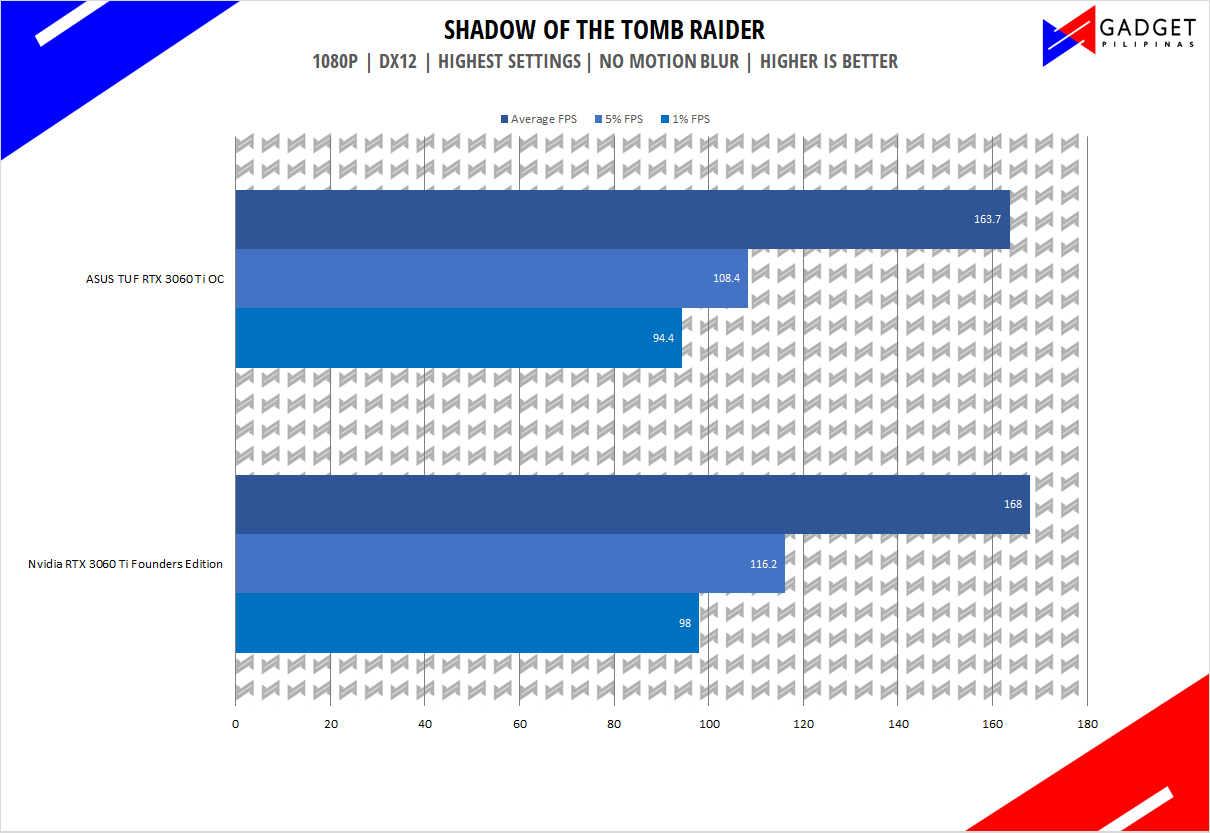
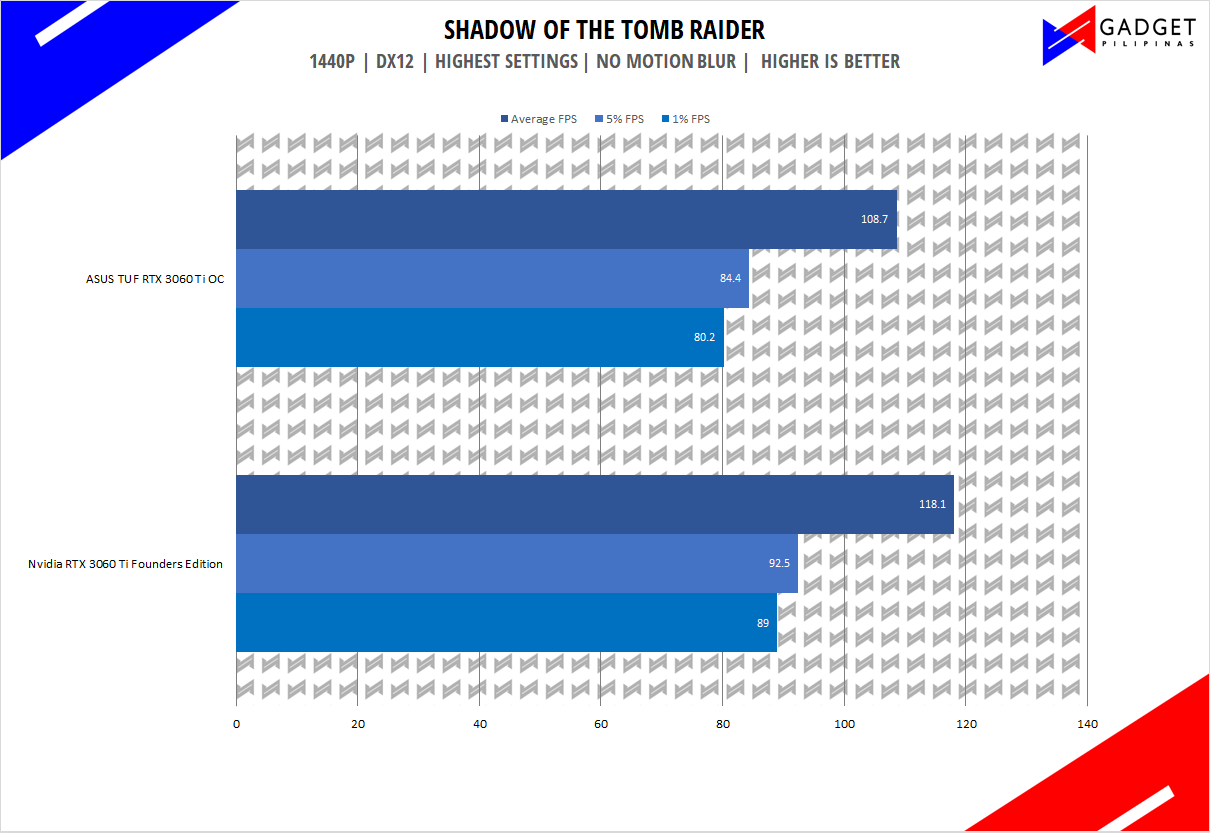
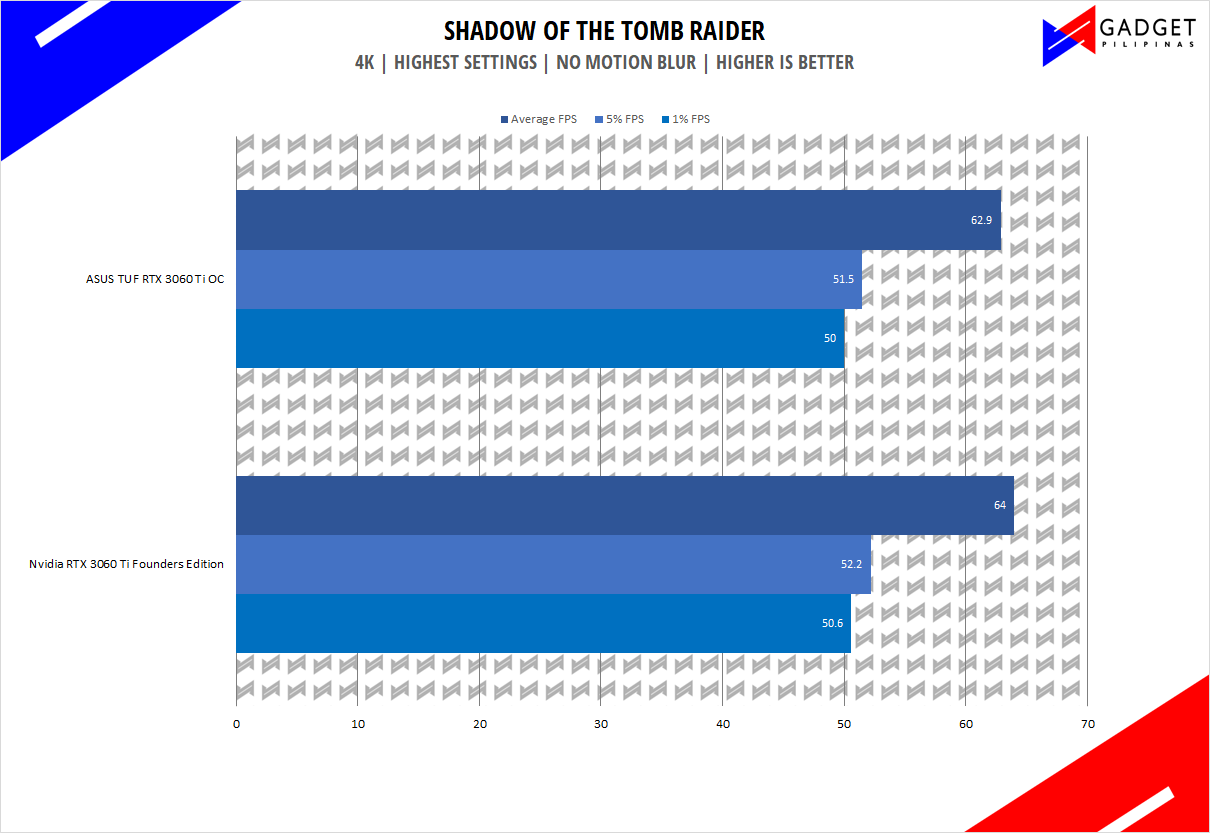 Shadow of The Tomb Raider or SOTR is the latest installment of the Lara Croft Tomb Raider franchise. Developed by Square Enix, SOTR uses the Foundation engine and is further enhanced by Eidos Montreal. STOR is also one of the first games to come out with Ray Tracing and DLSS support.
Shadow of The Tomb Raider or SOTR is the latest installment of the Lara Croft Tomb Raider franchise. Developed by Square Enix, SOTR uses the Foundation engine and is further enhanced by Eidos Montreal. STOR is also one of the first games to come out with Ray Tracing and DLSS support.
Metro Exodus
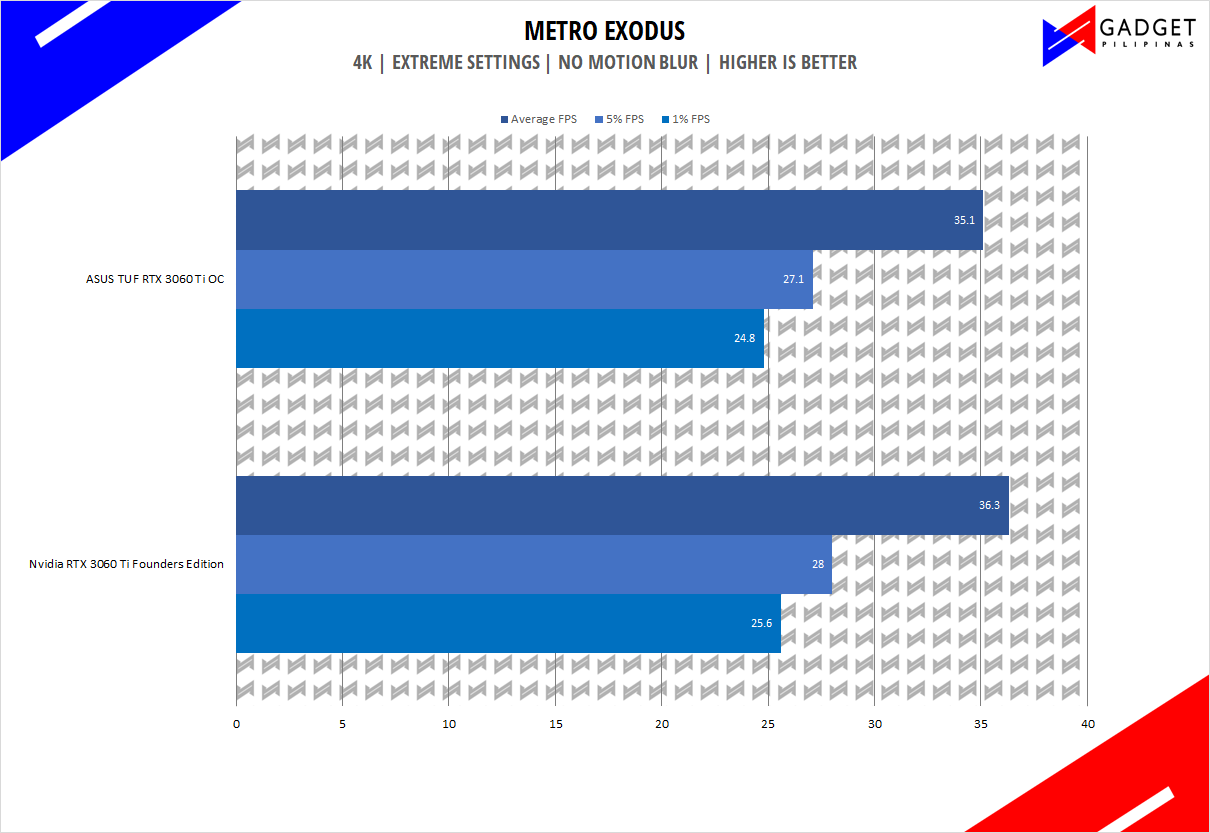 Metro Exodus is the third Metro game trilogy based on Dmitry Glukhovsky’s novels. The game is a first-person shooter with survival horror and stealth elements. The post-apocalyptic game is using 4A Engine by 4A games. Released last 2019, Metro Exodus remains to be one of the most graphically pleasing and demanding games that’s popular to date.
Metro Exodus is the third Metro game trilogy based on Dmitry Glukhovsky’s novels. The game is a first-person shooter with survival horror and stealth elements. The post-apocalyptic game is using 4A Engine by 4A games. Released last 2019, Metro Exodus remains to be one of the most graphically pleasing and demanding games that’s popular to date.
Assassin’s Creed: Odyssey
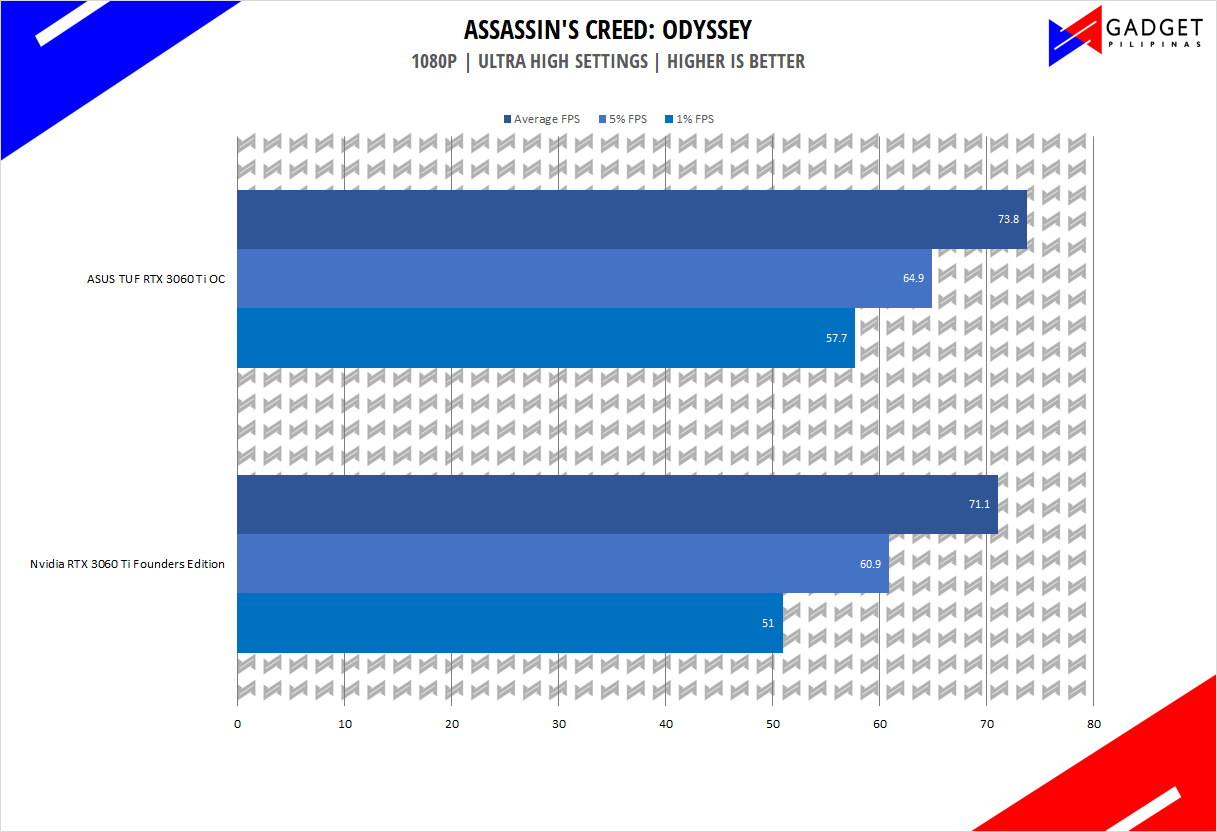
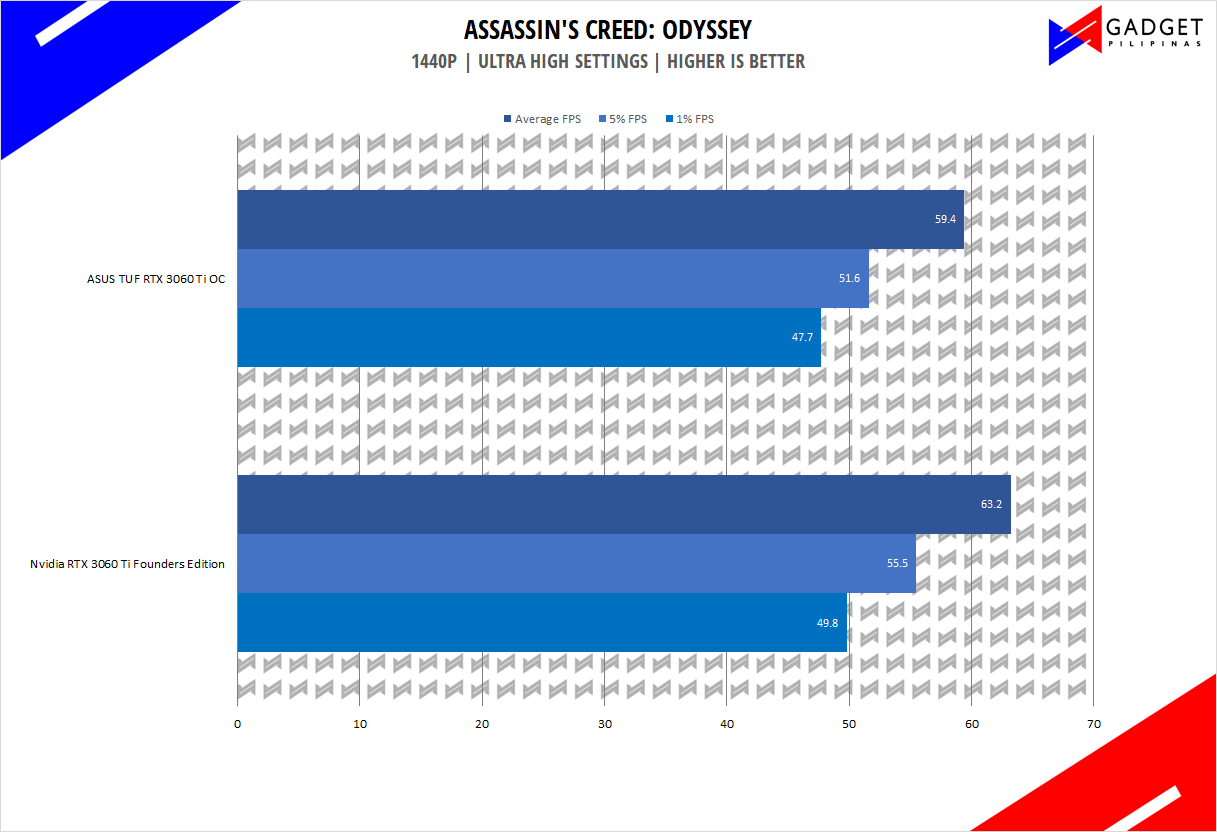
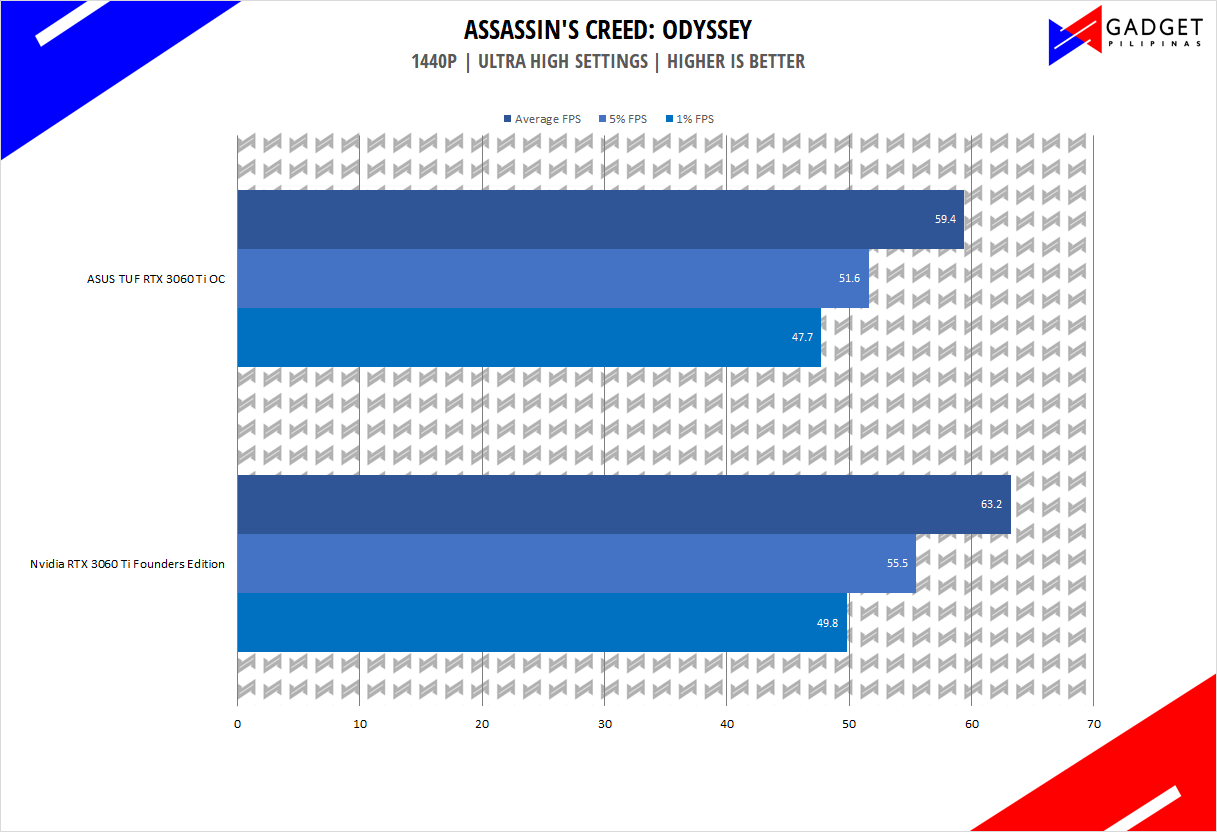 Assassin’s Creed Odyssey is the latest franchise installment from Ubisoft. It’s by far the most popular and stable Assassin’s Creed title since AC IV: Black Flag. It uses the AnvilNext 2.0 game engine, an updated version of Rainbow Six Siege’s game engine, and uses the DirectX 12 API.
Assassin’s Creed Odyssey is the latest franchise installment from Ubisoft. It’s by far the most popular and stable Assassin’s Creed title since AC IV: Black Flag. It uses the AnvilNext 2.0 game engine, an updated version of Rainbow Six Siege’s game engine, and uses the DirectX 12 API.
F1 2020
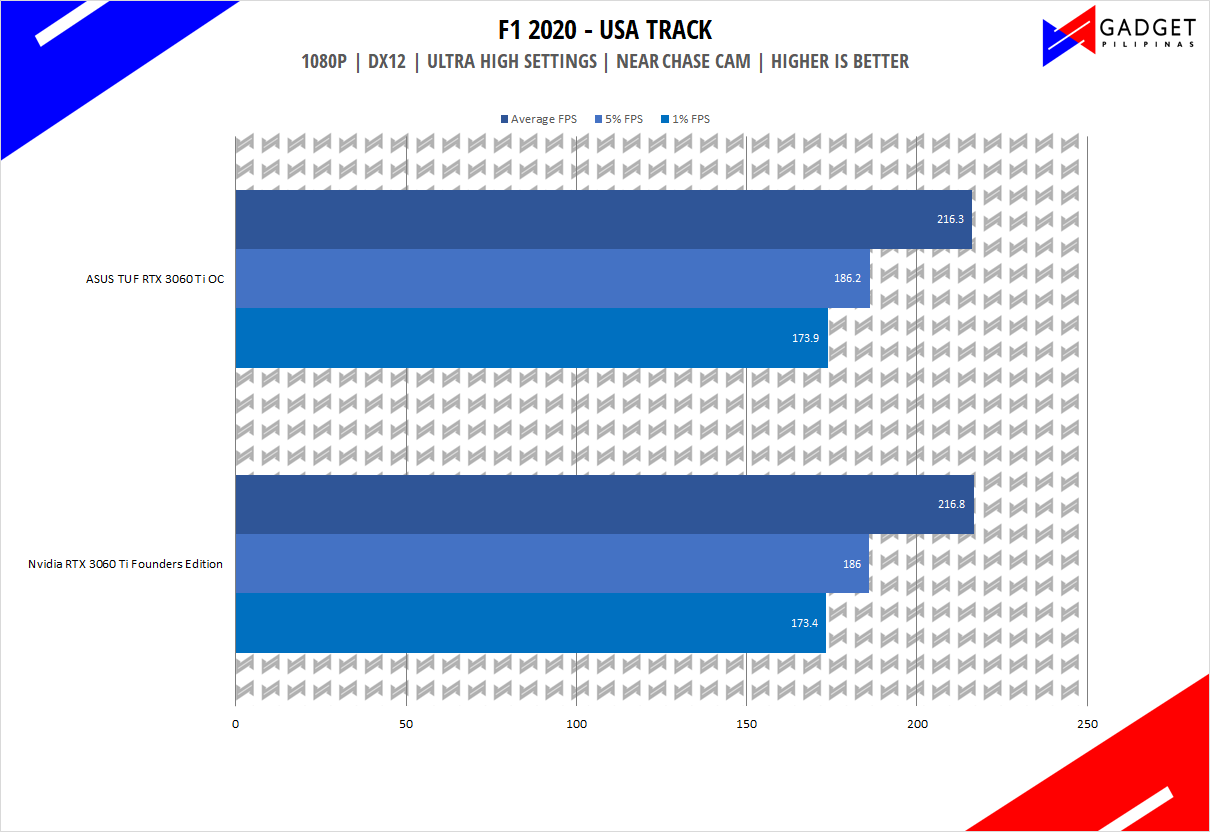
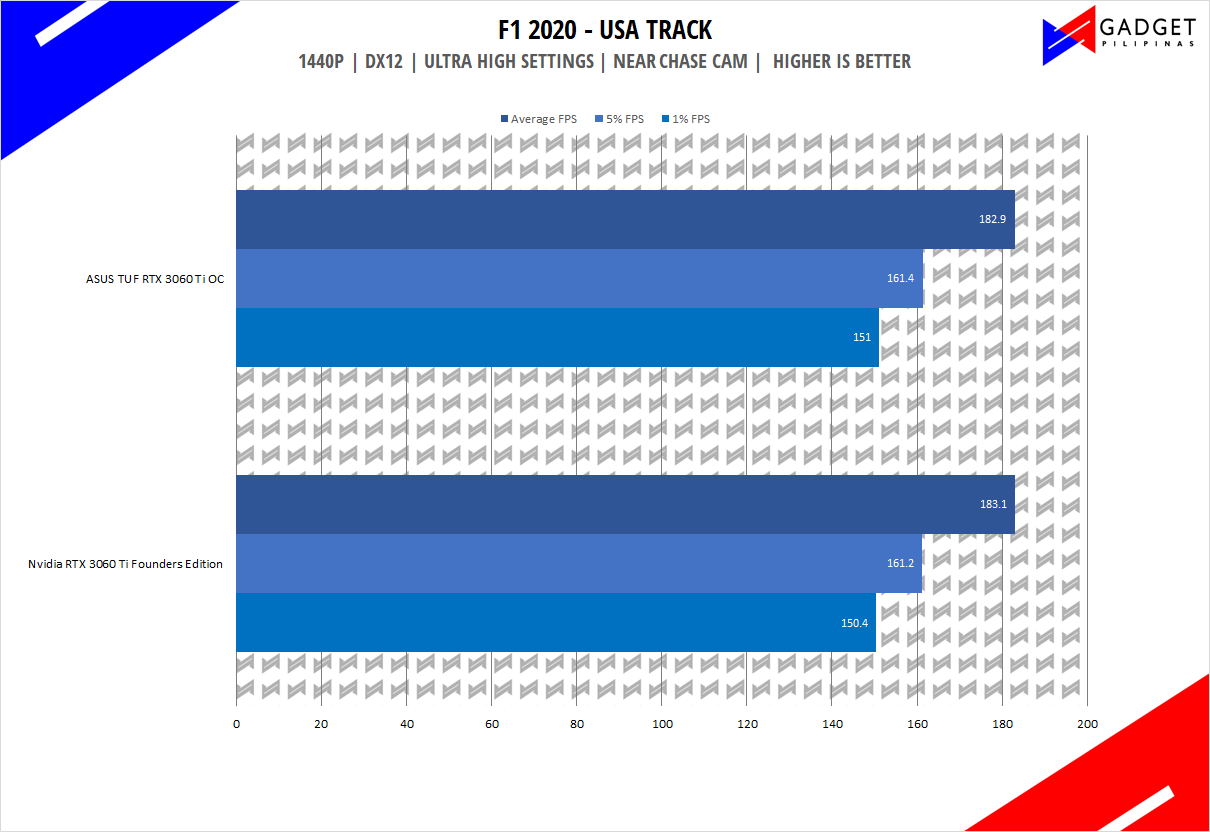
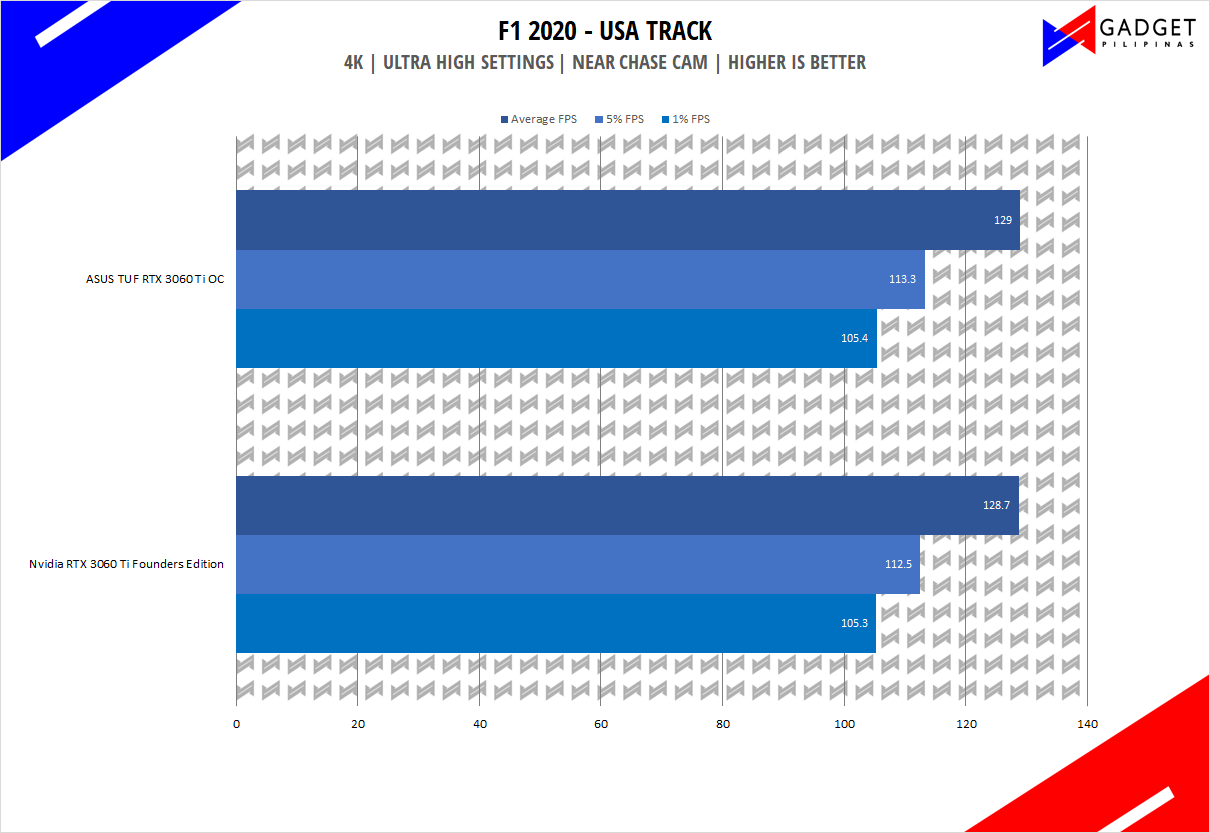 F1 2020 is the official video game of the 2020 Formula 1 and Formula 2 championships developed by Codemasters. F1 2020 is the twelfth installment in the franchise and uses the Ego Engine 3.0. F1 2020 is a good representation of racing games thanks to its realistic graphics and fairly demanding spec requirements.
F1 2020 is the official video game of the 2020 Formula 1 and Formula 2 championships developed by Codemasters. F1 2020 is the twelfth installment in the franchise and uses the Ego Engine 3.0. F1 2020 is a good representation of racing games thanks to its realistic graphics and fairly demanding spec requirements.
Performance Summary
On 1080p resolution, the TUF RTX 3060 Ti lags behind the Nvidia RTX 3060 Ti founders edition but quickly takes the throne once we ramp up the resolution to 1440p and 4K.
ASUS TUF RTX 3060 Ti Temps and Power Draw
Despite trailing behind a few FPS over the Founder Edition variant, the TUF RTX 3060 Ti has very impressive thermals as the card only peaked at 60°c during our whole benchmark run. The impressive thermal headroom translates to a huge overclocking potential for the ASUS TUF RTX 3060 Ti.
Despite being a triple fan graphics card and an overclocked model, the ASUS TUF RTX 3060 Ti OC manages to draw around 10-watts less power than the Founders Edition.
Conclusion
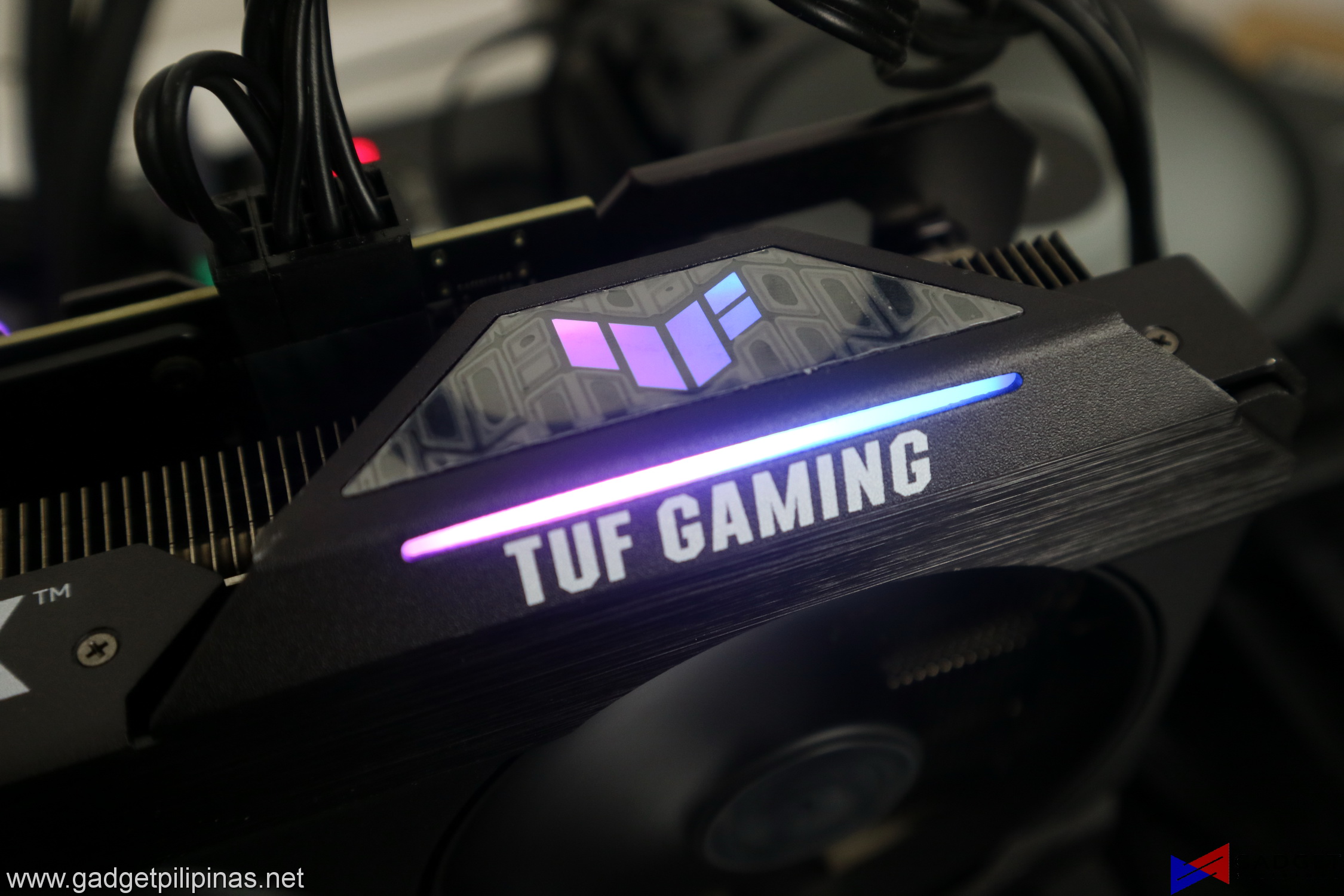 The Asus TUF RTX 3060Ti OC, alongside the rebranded logo represents that TUF Gaming is no longer a second-rate tier for people who can’t afford the prestigious ROG Strix models. The new TUF Gaming brand, represented by the TUF RTX 3060Ti is a premium brand that focuses on quality and durability before the fancy aesthetics which we’ll leave to the ROG brand to incorporate.
The Asus TUF RTX 3060Ti OC, alongside the rebranded logo represents that TUF Gaming is no longer a second-rate tier for people who can’t afford the prestigious ROG Strix models. The new TUF Gaming brand, represented by the TUF RTX 3060Ti is a premium brand that focuses on quality and durability before the fancy aesthetics which we’ll leave to the ROG brand to incorporate.
The ASUS TUF RTX 3060 Ti OC’s impressive thermals, superb build quality, and overclocking headroom are a trifecta of key features that can surely take advantage of the GA 104 silicon. It’s simply the ideal no-compromise graphics card with no fancy gimmicks that will surely last you for years with no problem thanks to its strong TUF foundation. That said, the ASUS TUF RTX 3060 Ti OC should be one of your top choices if you’re looking for a mid-range GPU as it’s a flagship model in disguise.
Grant is a Financial Management graduate from UST. His passion for gadgets and tech crossed him over in the industry where he could apply his knowledge as an enthusiast and in-depth analytic skills as a Finance Major. His passion allows him to earn at the same time help Gadget Pilipinas' readers in making smart, value-based decisions and purchases with his reviews and guides.

